„Ich nehme es jetzt seit 5 Monaten und was mir am meisten auffällt, ist, dass ich viel besser schlafe. Ich fühle mich energiegeladener und meine Verdauung hat sich verbessert. Ich kann es nur empfehlen.“
„Ich nehme Pleto seit 4 Monaten täglich. Ich habe mehr Energie, meine Haare fallen viel weniger aus und ich habe mir noch keine Erkältung eingefangen. Ich kann es 100% empfehlen.“
„Das Erste, was mir auffiel, war eine allgemeine Verringerung meiner Entzündungswerte und mehr Energie. Es hat mein Leben verändert. Danke.“
„Ich bin jetzt im dritten Monat und mein Haarausfall hat nicht nur aufgehört – es wächst sogar wieder nach. Auch meine Schlafqualität hat sich verbessert. Und was am wichtigsten ist: kein aufgeblähter Bauch mehr.“
„Ich segne den Tag indem ich mit der Einnahme von Pleto begonnen habe. Sowohl für mich als auch für meinen Partner ist es großartig. Ich nehme es seit Januar und habe nicht vor, damit aufzuhören.“
„Ich nehme Pleto seit mehreren Monaten ein und bin sehr zufrieden. Ich schlafe besser, fühle mich nicht mehr so müde und das Beste: Ich habe alle Nahrungsergänzungsmittel ersetzt, die ich vorher eingenommen habe.“
„Ich habe es bestellt, obwohl ich dachte, es würde mir wahrscheinlich nichts bringen. Doch in fast 5 Monaten haben sich meine Haut, Haare und Nägel deutlich verbessert und meine ständigen Blähungen haben deutlich abgenommen. Ich werde es weiter einnehmen.“
„Ich bin begeistert. Ich nehme es seit zweieinhalb Monaten und das Erste, was mir aufgefallen ist, ist die Regenerierung nach dem Training und viel Energie. Mein Stress ist viel besser, mein Blähbauch hat sich immens verbessert und ich verdaue mein Essen viel besser.“
„Ich nehme es seit fünf Monaten und was mir am meisten auffällt, ist, dass ich besser schlafe und mit mehr Energie aufwache. Früher hatte ich oft Phasen der Schlaflosigkeit, aber jetzt viel seltener. Was die Verdauung betrifft, hatte ich früher nach dem Essen Blähungen, aber jetzt passiert das nicht mehr oder nicht mehr so oft.“
„Es funktioniert wirklich!! Seitdem ich es nehme, fühle ich mich viel energiegeladener. Meine Haare, Haut und Nägel sind kräftiger. Es ist unglaublich. Ich bin sehr happy mit dem Produkt.“
„Seit ich Pleto nehme (seit 6 Monaten) fühle ich mich energiegeladener, schlafe besser und fühle mich weniger aufgebläht. Auch mein Hautbild hat sich verbessert und ich habe sogar schon Feedback dazu bekommen. Der Geschmack ist angenehm. Die Lieferung erfolgt sehr schnell. Ich bin bisher sehr zufrieden.“
Mehr als 150 Vorteile
wissenschaftlich belegt
Energie ist der Schlüssel zu optimaler Leistung im Alltag und bei sportlichen Aktivitäten. Darüber hinaus wirkt sich unser Energieniveau direkt auf unsere Stimmung aus und ist für ein glückliches und aktives Leben unerlässlich.
Vitamin C
Beeinflusst die Energieproduktion für den Stoffwechsel durch seine Rolle bei der Carnitinsynthese, verbessert die Eisenaufnahme, die Neurotransmittersynthese, seine antioxidativen Eigenschaften, unterstützt das Immunsystem und die Kollagenproduktion. Vitamin C trägt zum Energiestoffwechsel bei.
Vitamin B1, B2, B3, B6, B7, B8 und B12
Diese Vitamine können Leistung und Energie verbessern, indem sie den Nährstoffstoffwechsel optimieren, die Produktion von Neurotransmittern und roten Blutkörperchen unterstützen und die Gesundheit des Nervensystems erhalten.
Die Vitamine B1, B2, B3, B6, B7, B8 und B9 tragen zum Energiestoffwechsel bei.
Kalzium
Im Gegensatz zu B-Vitaminen produziert Kalzium nicht direkt Energie. Seine Rolle bei Muskelkontraktion, Nervenübertragung, Zellsignalisierung, Knochengesundheit, Regulierung des Elektrolythaushalts und Enzymaktivierung ist für die optimale Funktion des Körpers von grundlegender Bedeutung. Diese Prozesse tragen zu einer besseren Energieeffizienz, geringerer Müdigkeit und somit zu einer höheren Leistungsfähigkeit für körperliche und geistige Aktivitäten bei.
Calcium trägt zum Energiestoffwechsel bei.
Phosphor
Phosphor ist ein wesentlicher Bestandteil von ATP (Adenosintriphosphat), dem primären Energiemolekül in Zellen. Darüber hinaus unterstützt es den Stoffwechsel von Kohlenhydraten und Fetten und erleichtert die Umwandlung dieser Nährstoffe in nutzbare Energie. Schließlich ist Phosphor ein lebenswichtiges Element von Zellmembranen und DNA und gewährleistet eine effiziente Zellfunktion.
Phosphor trägt zum Energiestoffwechsel bei.
Magnesium
Wie Phosphor ist Magnesium an zahlreichen enzymatischen Reaktionen beteiligt, die ATP produzieren, das Molekül, das für die Energiegewinnung in den Zellen verantwortlich ist. Ohne Magnesium können diese Reaktionen nicht effizient ablaufen. Darüber hinaus ist Magnesium entscheidend für die reibungslose Nervenfunktion, hilft, Ruhe zu bewahren und Stress abzubauen, was sich positiv auf das Energieniveau auswirkt.
Magnesium trägt zum Energiestoffwechsel bei.
Kupfer
Kupfer ist an der Elektronentransportkette in den Mitochondrien beteiligt, die für die Energieproduktion der Zellen von entscheidender Bedeutung ist. Es trägt außerdem zur Bildung von Hämoglobin und roten Blutkörperchen bei, verbessert den Sauerstofftransport zu den Zellen und erhöht dadurch die Energie.
Kupfer trägt zum Energiestoffwechsel bei.
Mangan
Mangan ist ein Cofaktor in mehreren Enzymen, die am Stoffwechsel von Kohlenhydraten, Proteinen und Fetten beteiligt sind und diese Nährstoffe in Energie umwandeln. Es trägt außerdem zur Produktion von Superoxiddismutase (SOD) bei, die die Mitochondrien vor oxidativen Schäden schützt und die zelluläre Energieeffizienz aufrechterhält. Schließlich unterstützt es den Aufbau von Knochen und Bindegewebe und trägt so zur allgemeinen Gesundheit und körperlichen Leistungsfähigkeit bei.
Mangan trägt zum Energiestoffwechsel bei.
Ashwagandha
Durch die Senkung des Cortisolspiegels, des Stresshormons, kann Ashwagandha geistige und körperliche Ermüdung verringern und so eine nachhaltigere Leistungsfähigkeit bei alltäglichen und sportlichen Aktivitäten ermöglichen. Ebenso fördert es durch die Förderung einer besseren Schlafqualität die Energierückgewinnung.
Ashwagandha hilft Ihnen, sich energiegeladener zu fühlen.
Rhodiola
Rhodiola ist eine adaptogene Pflanze, die traditionell in der Kräutermedizin verwendet wird. Sie hat mehrere positive Auswirkungen auf die Energie und Ausdauer des Körpers, hilft Stress und Müdigkeit zu reduzieren, die körperliche und geistige Leistungsfähigkeit zu verbessern, den Energiestoffwechsel zu regulieren, die Ausdauer zu steigern, die Stimmung zu verbessern und das Nervensystem zu regulieren.
Rhodiola trägt zur Ausdauer bei sportlichen Leistungen bei.
Chlorella
Chlorella ist eine nährstoffreiche einzellige Grünalge, die sich positiv auf das Energie- und Ausdauerniveau des Körpers auswirkt. Sie liefert wichtige Nährstoffe, entgiftet den Körper für eine effizientere Funktion, verbessert die Verdauung und Nährstoffaufnahme, erhöht die Sauerstoffsättigung des Blutes und unterstützt die Muskelregeneration.
Chlorella steigert Vitalität und Energie.
Das Verdauungs- und Magen-Darm-System ist für ein besseres Leben von entscheidender Bedeutung, da es die Nährstoffaufnahme, die Abfallbeseitigung, die Krankheitsvorbeugung und die allgemeine Gesundheit des Körpers beeinflusst.
Rinde der Rotulme
Rotulmenrinde ist ein Kraut, das traditionell zur Behandlung verschiedener Magen-Darm-Probleme verwendet wird.
Es enthält Schleimstoffe, gallertartige Substanzen, die die Schleimhaut des Magen-Darm-Trakts überziehen und schützen können, wodurch Reizungen gelindert und die Heilung bei Entzündungen, Gastritis oder Magengeschwüren gefördert werden.
Die Rinde der Rotulme trägt zur Verdauung bei.
Ingwer
Ingwer hat antioxidative und entzündungshemmende Eigenschaften und wird häufig in der Küche und der traditionellen Medizin verwendet.
Es kann helfen, Übelkeit zu lindern, die Verdauung zu verbessern und Entzündungen im Magen-Darm-Trakt zu reduzieren. Es kann auch die Produktion von Verdauungsenzymen anregen und Darmgase lindern.
Ingwer trägt zur normalen Funktion und zum Wohlbefinden des Verdauungssystems bei.
Bio-Artischocke
Artischocken enthalten bioaktive Verbindungen wie Cynarin und Flavonoide, die gesundheitsfördernde Eigenschaften haben.
Es stimuliert die Gallenproduktion in der Leber, was die Fettverdauung unterstützt. Es kann auch als Präbiotikum wirken, indem es nützliche Bakterien im Darm ernährt und die allgemeine Verdauungsgesundheit fördert.
Artischocke trägt zur Zirkulation der Verdauungssäfte und zum Wohlbefinden des Darms bei. Sie trägt auch zur Verdauung und zur ordnungsgemäßen Funktion des Darms bei.
Klettenwurzel
Klettenwurzel ist eine Pflanze mit antioxidativen und entzündungshemmenden Eigenschaften, die in der Kräutermedizin aufgrund ihrer vielfältigen gesundheitlichen Vorteile verwendet wird.
Klette kann die Verdauung verbessern, Entzündungen im Magen-Darm-Trakt lindern und die Lebergesundheit fördern. Sie kann auch präbiotische Wirkungen haben und das Wachstum nützlicher Bakterien im Darm unterstützen.
Klettenwurzel unterstützt das Verdauungssystem.
Kalzium
Kalzium ist ein wichtiges Mineral für die Knochengesundheit, spielt aber auch eine wichtige Rolle für die Magen-Darm-Gesundheit.
Es kann die Muskelkontraktion im Magen-Darm-Trakt regulieren und so zur regelmäßigen Bewegung der Nahrung durch das Verdauungssystem beitragen. Es kann auch eine schützende Wirkung auf die Schleimhaut des Magen-Darm-Trakts haben.
Calcium trägt zur normalen Funktion der Verdauungsenzyme bei.
Emblica Officinalis
Emblica Officinalis, auch bekannt als Amla oder Indische Stachelbeere, ist eine Frucht, die reich an Vitamin C und Antioxidantien ist.
Aufgrund seines hohen Ballaststoffgehalts kann es die Verdauung verbessern und Verstopfung lindern. Darüber hinaus können seine antioxidativen Eigenschaften die Magen-Darm-Schleimhaut schützen und Entzündungen im Verdauungstrakt reduzieren.
Emblica trägt zur Magen-Darm-Gesundheit bei.
Effektives Stressmanagement und die Aufrechterhaltung einer guten emotionalen Stabilität sind für ein gesundes und ausgeglichenes Leben unerlässlich. Dies verbessert nicht nur das allgemeine Wohlbefinden, sondern beugt auch einer Reihe langfristiger Gesundheitsprobleme vor.
Rhodiola
Rhodiola rosea, allgemein bekannt als Rhodiola oder Goldwurzel, ist eine mehrjährige krautige Pflanze, die zur Familie der Dickblattgewächse (Crassulaceae) gehört.
Es ist für seine adaptogene Wirkung bekannt, d. h. es hilft dem Körper, sich an physischen, emotionalen und umweltbedingten Stress anzupassen und ihm zu widerstehen. Darüber hinaus senkt es den Cortisolspiegel, das Stresshormon, was dazu beitragen kann, die negativen Auswirkungen von chronischem Stress auf Körper und Geist zu mildern.
Es steigert auch die Produktion von Neurotransmittern wie Serotonin und Dopamin, die mit emotionalem Wohlbefinden und Stimmungsstabilität in Verbindung gebracht werden.
Rhodiola hilft dem Körper, sich an emotionalen Stress anzupassen.
Schisandra Chinensis
Die Beeren stammen aus China und Russland und werden dort seit Jahrhunderten in der traditionellen Medizin verwendet. Sie sind bekannt für ihre adaptogenen, antioxidativen und leberschützenden Eigenschaften. Hier sind einige ihrer wichtigsten Vorteile gegen Stress.
- Hilft bei der Regulierung des Cortisolspiegels und anderer Stresshormone, was zur Verringerung von Ängsten und zur Förderung der emotionalen Stabilität beitragen kann.
- Wirkt als Adaptogen und hilft dem Körper, sich an physischen und emotionalen Stress anzupassen und ihm zu widerstehen, was die Reaktion des Körpers auf Stress verbessern kann.
Schisandra hat adaptogene Eigenschaften, die die Fähigkeit des Menschen verbessern können, sich an Stress anzupassen.
Schwarze Johannisbeere
Die Schwarze Johannisbeere ist ein Strauch aus der Familie der Grossulariaceae, der kleine, nährstoffreiche schwarze Beeren hervorbringt.
Es enthält Antioxidantien wie Vitamin C und Flavonoide, die dazu beitragen, oxidativen Stress im Körper zu reduzieren und so die emotionale Stabilität zu fördern.
Darüber hinaus stärkt es das Immunsystem, was dem Körper helfen kann, Stress besser zu bewältigen und ein emotionales Gleichgewicht zu bewahren.
Schwarze Johannisbeere stärkt die Widerstandskraft gegen Stress und hilft dem Körper, diesen zu überwinden.
Geistige Leistungsfähigkeit und Gedächtnis beeinflussen nicht nur den akademischen und beruflichen Erfolg, sondern verbessern auch zwischenmenschliche Beziehungen, die Gesundheit und die allgemeine Lebensqualität. Ein gesunder und leistungsfähiger Geist ist der Schlüssel zur Bewältigung täglicher Herausforderungen, zur Freude an Erlebnissen und zur Erhaltung von Unabhängigkeit und Wohlbefinden im Laufe des Lebens.
Vitamin B5 (Pantothensäure)
Pantothensäure ist ein Vitamin des B-Komplexes, das für verschiedene Körperfunktionen unerlässlich ist, darunter auch für die geistige Leistungsfähigkeit und das Gedächtnis.
- Versorgt das Gehirn mit Energie durch die Synthese von Coenzym A, das eine entscheidende Rolle im Stoffwechsel von Kohlenhydraten, Fetten und Proteinen spielt.
- Durch die Steigerung der Energieproduktion kann Pantothensäure die Konzentration und die allgemeine geistige Leistungsfähigkeit verbessern.
- Produziert Acetylcholin, einen Neurotransmitter, der für das Gedächtnis und das Lernen entscheidend ist.
- Beteiligt sich an der Synthese von Nebennierenhormonen wie Cortisol, die dem Körper bei der Stressbewältigung helfen. Ein gutes Stressmanagement ist für die Aufrechterhaltung einer optimalen kognitiven Funktion von entscheidender Bedeutung.
Vitamin B5 trägt zu einer normalen geistigen Leistungsfähigkeit bei.
Rhodiola
Rhodiola rosea ist eine adaptogene Pflanze, die für ihre positive Wirkung auf die geistige Leistungsfähigkeit und das Gedächtnis bekannt ist.
- Hilft dem Körper, sich an Stress anzupassen und reduziert geistige und körperliche Erschöpfung. Dies kann die geistige Klarheit und Konzentration verbessern. · Erhöht die ATP-Produktion, erhöht die dem Gehirn zur Verfügung stehende Energie und verbessert die geistige Leistungsfähigkeit.
- Besitzt antioxidative und entzündungshemmende Eigenschaften, die Neuronen vor Schäden schützen und so zu einer besseren langfristigen Gehirngesundheit beitragen.
Rhodiola fördert die geistige Ausdauer.
Ashwagandha
Ashwagandha ist eine weitere adaptogene Pflanze mit zahlreichen Vorteilen für die geistige Leistungsfähigkeit und das Gedächtnis.
- Reduziert den Cortisolspiegel, was die kognitive Funktion verbessern und geistige Ermüdung verringern kann.
- Schützt Neuronen vor oxidativen Schäden und verbessert die synaptische Plastizität, die für das Gedächtnis und das Lernen entscheidend ist.
- Verbessert die Kommunikation zwischen Neuronen und unterstützt das Gedächtnis und die kognitive Leistung.
- Kann die Schlafqualität verbessern, was für die Gedächtniskonsolidierung unerlässlich ist.
Ashwagandha unterstützt die geistige Funktion älterer Erwachsener.
Melissa Officinalis
Melissa Officinalis, allgemein bekannt als Zitronenmelisse, ist eine Pflanze, die die geistige Leistungsfähigkeit und das Gedächtnis durch verschiedene Mechanismen fördert.
- Kann den GABA-Spiegel (Gamma-Aminobuttersäure) beeinflussen, einen Neurotransmitter mit beruhigender Wirkung auf das Gehirn, der das Gedächtnis und die Konzentration verbessert.
- Hat beruhigende Eigenschaften, die Stress und Angst reduzieren und die Konzentration und geistige Klarheit verbessern können.
- Seine antioxidativen Eigenschaften schützen die Gehirnzellen vor oxidativen Schäden und unterstützen die langfristige Gesundheit des Gehirns.
Melisse trägt zur Aufrechterhaltung einer guten kognitiven Funktion bei.
Gesunde Haare, Nägel und Haut sind nicht nur ästhetisch vorteilhaft, sondern haben auch psychologische, soziale und körperliche Auswirkungen. Die Pflege dieser Aspekte trägt zu mehr Selbstvertrauen bei und spiegelt die allgemeine Gesundheit wider, was zu einem erfüllteren und zufriedeneren Leben führt.
Zink
Zink ist ein essentielles Mineral, das an zahlreichen enzymatischen Reaktionen im Körper beteiligt ist. Es unterstützt die Proteinsynthese, die Zellteilung und die Funktion des Immunsystems. Achten Sie auf Ihr Aussehen, indem Sie Haarausfall vorbeugen und das Haarwachstum fördern. Zink stärkt außerdem die Nägel und beugt Brüchigkeit vor, fördert die Wundheilung der Haut und bekämpft Akne, indem es die Talgproduktion reguliert.
Zink trägt zur Erhaltung von Haaren, Haut und Nägeln bei.
Kupfer
Kupfer ist ein Mineral, das für die Bildung von Hämoglobin und Kollagen notwendig ist. Es ist an der Melaninproduktion und der Bildung von Bindegewebe beteiligt. Es trägt zur Erhaltung der Haarfarbe bei und beugt vorzeitigem Ergrauen vor. Es stärkt die Nägel und trägt zur Elastizität der Haut bei.
Kupfer trägt zur Pigmentierung von Haut und Haar bei.
Vitamin A
Vitamin A ist ein fettlösliches Vitamin, das für Sehkraft, Wachstum und Zelldifferenzierung unerlässlich ist. Es ist an der Talgproduktion beteiligt, trägt zur Gesunderhaltung der Kopfhaut bei, fördert die Zellregeneration und verbessert die Nagelgesundheit. Es verbessert außerdem die Hautstruktur und bekämpft Akne und Zeichen der Hautalterung.
Vitamin A trägt zur Hautpflege bei.
Vitamin B2
Vitamin B2 ist ein wasserlösliches Vitamin, das an der Energieproduktion und Zellfunktion beteiligt ist. Daher fördert es gesundes Haarwachstum, verbessert die Nagelgesundheit und trägt zur Erhaltung gesunder Haut bei und bekämpft auch Dermatitis und andere Hauterkrankungen.
Vitamin B2 trägt zur Hautpflege bei.
Vitamin B3 (Niacin)
Es ist ein wasserlösliches Vitamin, das am Zellstoffwechsel beteiligt ist. Es unterstützt die DNA-Reparatur und die Energieproduktion. Es verbessert die Durchblutung der Kopfhaut und fördert das Haarwachstum. Es stärkt außerdem die Barrierefunktion der Haut und reduziert Entzündungen und Rötungen.
Vitamin B3 trägt zur Hautpflege bei.
Vitamin B7 und B8
Vitamin B7/B8 ist wichtig für den Stoffwechsel der Makronährstoffe und unterstützt die Keratinproduktion. Dies fördert das Haarwachstum und die Haarstärke und beugt Haarausfall vor. Gleiches gilt für die Nägel, die gestärkt werden und Brüchigkeit und Ablösung vorbeugen. Dermatologisch hält es die Haut hydratisiert und gesund und verbessert ihr Aussehen und ihre Textur.
Die Vitamine B7 und B8 tragen zur Pflege von Haut und Haar bei.
Vitamin C
Vitamin C ist ein wasserlösliches Vitamin mit antioxidativen Eigenschaften. Es trägt zur Kollagensynthese und Gewebereparatur bei. Es beugt Haarschäden durch freie Radikale vor und fördert gesundes Wachstum. Es stärkt die Nägel und verbessert ihr Wachstum durch die Steigerung der Kollagenproduktion. Schließlich trägt es zur Erhaltung straffer und elastischer Haut bei und bekämpft Zeichen der Hautalterung.
Vitamin C trägt zur Kollagenbildung zur Hautpflege bei.
Ashwagandha
Ashwagandha ist ein adaptogenes Kraut, das dem Körper hilft, Stress und Angst zu bewältigen und die Immunfunktion zu verbessern. Stressabbau ist der Schlüssel zur Vorbeugung von Haarausfall und zur Förderung eines gesunden Wachstums. Gleiches gilt für die allgemeine Gesundheit der Nägel.
Ashwagandha trägt zur Erhaltung der Hautgesundheit bei.
Eine gute Schlafqualität ist für die allgemeine Gesundheit und das Wohlbefinden unerlässlich, da sie praktisch alle Aspekte der körperlichen, geistigen und emotionalen Körperfunktionen beeinflusst. Ausreichend Schlaf und gesunde Schlafgewohnheiten können die Lebensqualität und die Lebenserwartung erheblich verbessern.
Ashwagandha
Ashwagandha hat beruhigende und entspannende Eigenschaften, die Angst und Stress lindern und das Einschlafen erleichtern können. Durch die Regulierung des Cortisolspiegels und anderer stressbedingter Hormone kann Ashwagandha dazu beitragen, den natürlichen Rhythmus des Körpers wiederherzustellen und einen erholsameren Schlaf zu fördern.
Rhodiola
Rhodiola wird mit der Reduzierung von Stress und Angst in Verbindung gebracht, was zur Beruhigung des Geistes und zum besseren Schlaf beitragen kann.
Hormonelle Aktivität ist entscheidend für das reibungslose Funktionieren des menschlichen Körpers, da Hormone als chemische Botenstoffe eine Vielzahl von physiologischen und metabolischen Prozessen regulieren. Ein hormonelles Ungleichgewicht kann zu einer Vielzahl von Gesundheitsproblemen führen, wie z. B. Stoffwechselstörungen, Fruchtbarkeitsproblemen, Stimmungsschwankungen, Schlafstörungen und vielem mehr.
Vitamin B6
Vitamin B6, auch bekannt als Pyridoxin, ist essentiell für den Stoffwechsel von Aminosäuren, Kohlenhydraten und Fetten im Körper. Darüber hinaus spielt es eine wichtige Rolle bei der Synthese und Regulierung bestimmter Hormone, darunter Neurotransmitter, Sexualhormone, Nebennierenhormone und Schilddrüsenhormone. Hier sind seine wichtigsten Vorteile.
- Es ist für die Synthese von Neurotransmittern wie Serotonin und Dopamin notwendig. Diese Hormone haben einen erheblichen Einfluss auf Stimmung, Stress und Appetitregulierung.
- Es ist am Östrogenstoffwechsel in der Leber beteiligt und kann so insbesondere bei Frauen im gebärfähigen Alter zur Aufrechterhaltung des Hormonhaushalts im Körper beitragen.
- Es ist an der Synthese von Progesteron beteiligt, einem Schlüsselhormon bei der Regulierung des Menstruationszyklus und der Fruchtbarkeit.
- Es ist für die Synthese bestimmter Nebennierenhormone wie Cortisol und Adrenalin notwendig, die bei der Stressreaktion und der Regulierung des Energiestoffwechsels eine Rolle spielen.
- Es kann die periphere Umwandlung des Hormons Thyroxin (T4) in Trijodthyronin (T3) unterstützen, ein Schilddrüsenhormon, das den Grundumsatz und die Körpertemperatur reguliert.
- Es kann die Insulinempfindlichkeit verbessern, was zur Regulierung des Blutzuckerspiegels beitragen und Problemen im Zusammenhang mit Insulinresistenz vorbeugen kann.
Vitamin B6 trägt zur Regulierung der Hormontätigkeit bei.
Die Hauptfunktion des Immunsystems besteht darin, das innere Gleichgewicht des Körpers gegen äußere Einflüsse aufrechtzuerhalten, seien sie biologischer (Krankheitserreger), physikochemischen (wie Schadstoffe oder Strahlung) oder innerer (z. B. Krebszellen). Einfach ausgedrückt: Es erkennt alles, was Ihrem Körper schaden kann, und reagiert, um ihn zu schützen.
Immunsystem
Die Hauptfunktion des Immunsystems besteht darin, das innere Gleichgewicht des Körpers gegenüber äußeren Angriffen – biologischen (pathogenen) oder physikalisch-chemischen (wie Schadstoffen oder Strahlung) – sowie inneren Bedrohungen (z. B. Krebszellen) aufrechtzuerhalten. Vereinfacht ausgedrückt: Es erkennt alles, was Ihrem Körper schaden könnte, und reagiert, um ihn zu schützen.
Vitamin A
Vitamin A ist für das Immunsystem sehr wichtig, da es die Produktion und Aktivität von Lymphozyten stimuliert, einer Art weißer Blutkörperchen, die eindringende Erreger angreifen und dem Körper helfen, Antikörper zu produzieren, um zukünftige Infektionen in Schach zu halten.
Vitamin A trägt zu einer normalen Funktion des Immunsystems bei.
Vitamin B6
Vitamin B6 ist entscheidend für die Produktion von Immunzellen und die Erhöhung der Anzahl von Antikörpern gegen Infektionen. Es fungiert außerdem als Kommunikationskanal zwischen Zytokinen und Chemokinen, zwei Proteinen, deren Aufgabe es ist, die gesamte Immunantwort beim Auftreten eines Eindringlings zu koordinieren.
Vitamin B6 trägt zu einer normalen Funktion des Immunsystems bei.
Vitamine B9 (Folsäure) und B12
Beide Vitamine unterstützen die ordnungsgemäße Funktion des Immunsystems, indem sie die Bildung und Aktivierung von Lymphozyten unterstützen, insbesondere während des Alterns, da die Produktion von T-Lymphozyten mit dem Alter abnimmt.
Die Vitamine B9 und B12 tragen zu einer normalen Funktion des Immunsystems bei.
Sich körperlich und geistig wohlzufühlen, ist viel mehr als nur ein Gefühl. Wenn wir echtes körperliches und geistiges Wohlbefinden erfahren, können wir besser mit anderen umgehen, arbeiten besser und leben letztendlich besser.
Ashwagandha
Ashwagandha trägt zum körperlichen Wohlbefinden bei, indem es Stress reduziert, das optimale Energieniveau erhöht und aufrechterhält, den Schlaf verbessert, das Immunsystem stärkt und Entzündungen reduziert. Was das geistige Wohlbefinden betrifft, verbessert es die Stimmung, die kognitiven Funktionen, reduziert die Symptome von Depressionen und verbessert die Konzentration.
Ashwagandha trägt dazu bei, das geistige und körperliche Wohlbefinden aufrechtzuerhalten.
Emblica Officinalis
Die indische Stachelbeere, auch Amla genannt, ist eine nährstoffreiche Frucht mit vielfältigen Vorteilen für die körperliche und geistige Gesundheit. Ihr hoher Vitamin-C-Gehalt stärkt die Abwehrkräfte. Sie verbessert zudem die Verdauung und den Stoffwechsel, was das körperliche Wohlbefinden steigern kann. Auf geistiger Ebene reduziert sie oxidativen Stress im Gehirn, verbessert die kognitiven Funktionen und lindert Angstzustände und Depressionen.
Emblica Officinalis trägt zum körperlichen Wohlbefinden bei.
Melissa Officinalis
Melissa Officinalis, auch als Zitronenmelisse bekannt, ist ein Kraut mit entspannenden und beruhigenden Eigenschaften für das Nervensystem, das hilft, Angstzustände und Stress abzubauen. Es fördert außerdem einen erholsamen Schlaf, der für die Genesung sowie das geistige und körperliche Wohlbefinden entscheidend ist. Darüber hinaus hat es Eigenschaften, die die Konzentration verbessern und zur Erhaltung der geistigen Klarheit beitragen können.
Wie Emblica Officinalis kann Zitronenmelisse Verdauungsbeschwerden lindern
Kognitive und psychologische Funktionen sind für nahezu jeden Aspekt des täglichen Lebens von grundlegender Bedeutung – von der Fähigkeit, Aufgaben zu erledigen und persönliche Beziehungen zu pflegen, bis hin zur emotionalen Regulierung und körperlichen Gesundheit. Daher ist die Investition in die geistige und kognitive Gesundheit für ein ausgeglichenes und produktives Leben unerlässlich.
Vitamin C
Vitamin C, auch als Ascorbinsäure bekannt, ist ein essentieller Nährstoff, der mehrere Schlüsselrollen bei der Aufrechterhaltung und Verbesserung der kognitiven Funktionen spielt.
- Beugt der Alterung des Gehirns vor, indem es es vor oxidativem Stress schützt.
- Hilft bei der Synthese von Neurotransmittern, die für die Stimmungsregulierung und kognitive Funktion wichtig sind.
- Schützt das Gehirn vor Infektionen und Entzündungen.
- Erhält die Integrität der Blutgefäße und sorgt für eine ausreichende Versorgung des Gehirns mit Blut und Sauerstoff.
- Reguliert den Cortisolspiegel und reduziert Stress und seine negativen Auswirkungen auf die Wahrnehmung. · Verhindert neuronale Schäden und verbessert die synaptische Plastizität.
Vitamin C trägt zu einer normalen psychischen Funktion bei.
Vitamine B1, B3, B6, B7-B8, B9 und B12
Diese Vitamine des B-Komplexes wirken zusammen, um die kognitiven Funktionen aufrechtzuerhalten und zu verbessern, das Gehirn vor Schäden zu schützen, eine effiziente Kommunikation zwischen den Neuronen sicherzustellen und die für eine optimale Gehirnfunktion notwendige Energie bereitzustellen.
B-Vitamine tragen zu einer normalen psychischen Funktion bei.
Melissa Officinalis
Auch als Zitronenmelisse oder Melisse bekannt, ist sie eine Pflanze mit zahlreichen Vorteilen für die kognitiven Funktionen aufgrund ihrer antioxidativen, entzündungshemmenden und angstlösenden Eigenschaften.
- Kann Stress und Angstzustände reduzieren, Faktoren, die sich oft negativ auf die kognitive Funktion auswirken. Durch die Stressreduzierung kann Melisse die Konzentration und geistige Klarheit verbessern.
- Kann den GABA-Spiegel (Gamma-Aminobuttersäure) beeinflussen, einen Neurotransmitter, der eine beruhigende Wirkung auf das Gehirn hat. Dies kann die Konzentration und das Kurzzeitgedächtnis verbessern.
- Seine antioxidativen Eigenschaften schützen die Gehirnzellen vor oxidativen Schäden und tragen so langfristig zur Gesundheit und Funktion des Gehirns bei.
Melisse unterstützt eine gute kognitive Funktion.
Bio Rhodiola
Rhodiola ist eine adaptogene Pflanze, die für ihre Fähigkeit bekannt ist, die Stressresistenz zu erhöhen und die kognitiven Funktionen auf verschiedene Weise zu unterstützen. · Hilft dem Körper, sich an Stress anzupassen, indem es den Cortisolspiegel senkt und die körperliche und geistige Ausdauer verbessert. Durch die Reduzierung von Stress kann Rhodiola das Gedächtnis, die Konzentration und andere kognitive Funktionen verbessern.
- Kann die Stimmung heben und Symptome von Depressionen und Angstzuständen lindern, was sich positiv auf die kognitive Funktion auswirken kann.
- Verbessert die Produktion von ATP (Adenosintriphosphat), der primären Energiequelle für Zellen, was die geistige Energie steigern und geistige Ermüdung verringern kann. Rhodiola trägt zu optimaler geistiger und kognitiver Aktivität bei.
Zink
Zink ist ein essentielles Mineral, das eine entscheidende Rolle für die kognitive Funktion und die Gesundheit des Gehirns spielt.
- Schlüssel zur ordnungsgemäßen Neurotransmitterfunktion, entscheidend für die Kommunikation zwischen Neuronen und die kognitive Funktion.
- Beteiligt sich an der Modulation der synaptischen Plastizität, der Fähigkeit des Gehirns, sich anzupassen und neu zu organisieren, was für Lernen und Gedächtnis von entscheidender Bedeutung ist.
- Wirkt als Antioxidans und schützt die Gehirnzellen vor oxidativen Schäden, was für die Vorbeugung von kognitivem Abbau und neurodegenerativen Erkrankungen von entscheidender Bedeutung ist.
- Hilft, Entzündungen im Gehirn zu reduzieren, was die kognitive Funktion verbessern und einem kognitiven Abbau vorbeugen kann.
- Wird für die Synthese von Neurotransmittern wie Serotonin und Dopamin benötigt, die die Stimmung und die kognitive Funktion regulieren.
- Ein ausreichender Zinkspiegel kann Depressionen und Angstzuständen vorbeugen, die sich negativ auf die Wahrnehmung auswirken können.
Zink trägt zu einer normalen psychischen Funktion bei.
Gesunde Muskeln und Knochen sind die Grundlage für ein aktives, unabhängiges und qualitativ hochwertiges Leben. Sie verbessern nicht nur die Mobilität und körperliche Leistungsfähigkeit, sondern beugen auch Krankheiten vor, reduzieren Stress, fördern die geistige und emotionale Gesundheit und tragen zu einem aktiven und gesunden Altern bei.
Kalzium
Kalzium ist der Hauptbestandteil von Knochen und Zähnen. Es ist essentiell für den Aufbau und Erhalt der Knochenstruktur. Sein Hauptnutzen für die Knochen besteht darin, dass es Osteoporose vorbeugt und die Knochendichte erhält. Es ist außerdem wichtig für die Muskelkontraktion und die Übertragung von Nervensignalen.
Calcium ist für den Knochenerhalt notwendig und trägt zur normalen Muskelfunktion bei.
Vitamin D
Vitamin D erleichtert die Kalziumaufnahme im Darm und reguliert den Kalzium- und Phosphorspiegel im Blut. Daher ist es wichtig für den Knochenaufbau und -erhalt. Es beugt außerdem Rachitis bei Kindern und Osteomalazie bei Erwachsenen vor. Es verbessert die Muskelfunktion und beugt Muskelschwäche vor.
Vitamin D trägt zum Knochenerhalt und zur Muskelfunktion bei.
Magnesium
Magnesium ist an über 300 enzymatischen Reaktionen im Körper beteiligt, darunter an der Proteinsynthese sowie an der Muskel- und Nervenfunktion. Es unterstützt die Knochenmatrixbildung und reguliert den Kalziumtransport. Darüber hinaus trägt es zur Muskelentspannung bei und beugt Krämpfen und Müdigkeit vor.
Magnesium trägt zum Knochenerhalt und zur Muskelfunktion bei.
Zink
Zink ist essentiell für die Proteinsynthese und die Enzymfunktion. Es ist an der Bildung und Regeneration der Knochenmatrix beteiligt. Es trägt außerdem zur Muskelreparatur und zum Muskelwachstum bei und wirkt sich positiv auf die Immunfunktion aus, die die Muskelregeneration beeinflusst.
Zink trägt zum Knochenerhalt bei.
Vitamin C
Vitamin C ist ein Antioxidans, das die Kollagenproduktion unterstützt, ein wichtiges Protein für Knochen und Muskeln. Es fördert die Gesundheit des knochenstützenden Bindegewebes und beschleunigt die Muskelregeneration nach dem Training.
Vitamin C trägt zur Kollagenbildung für eine normale Knochenfunktion bei.
Mangan
Mangan ist notwendig für die Bildung von Bindegewebe und starken Knochen. Es unterstützt den Kalziumstoffwechsel und ist an der Energieproduktion beteiligt. Es wirkt antioxidativ und schützt die Muskeln vor oxidativen Schäden. Mangan trägt zum Knochenerhalt bei.
Gutes Sehvermögen ist unerlässlich. Es beeinflusst die Lebensqualität, insbesondere die Produktivität, die körperliche und geistige Gesundheit, das soziale Miteinander, die persönliche Unabhängigkeit und die körperliche Leistungsfähigkeit. Wir helfen Ihnen, Ihr Sehvermögen zu verbessern.
Vitamin A
Vitamin A ist ein fettlösliches Vitamin, das für das Sehvermögen, das Wachstum und das Immunsystem unerlässlich ist. Es ist entscheidend für die Produktion von Rhodopsin, einem Pigment in den Stäbchen der Netzhaut, das das Sehen bei schlechten Lichtverhältnissen ermöglicht und Nachtblindheit vorbeugt, einer Erkrankung, bei der sich die Sehkraft bei schwachem Licht verschlechtert. Es trägt außerdem zur Gesundheit der Hornhaut, der transparenten Schicht an der Vorderseite des Auges, bei, indem es das Risiko einer Xerophthalmie verringert, einer Erkrankung, die zu stark trockenen Augen und Hornhautschäden führen und schließlich zur Erblindung führen kann.
Vitamin A trägt zur Erhaltung der Sehkraft bei.
Vitamin B2
Es handelt sich um ein wasserlösliches Vitamin des B-Komplexes, das für den Energiestoffwechsel und die Zellgesundheit unerlässlich ist. Es produziert Riboflavin, das als Antioxidans wirkt und das Risiko der Entwicklung von Katarakten, einer Trübung der Augenlinse, die zur Erblindung führen kann, verringert. Es ist außerdem an der Regeneration von Glutathion beteiligt, einem Antioxidans, das die Augenlinse vor möglichen Schäden schützt und zur allgemeinen Augengesundheit beiträgt. Vitamin B2 trägt zur Erhaltung der Sehkraft bei.
Zink
Zink ist ein essentielles Mineral, das an zahlreichen enzymatischen und metabolischen Funktionen im Körper beteiligt ist. Es unterstützt den Transport von Vitamin A von der Leber zur Netzhaut, wo Melanin, ein schützendes Pigment im Auge, produziert wird. Ebenso trägt Zink durch die Verbesserung der Funktion von Vitamin A zu einer besseren Sicht bei schlechten Lichtverhältnissen bei. Es ist außerdem an der Funktion mehrerer antioxidativer Enzyme beteiligt, die die Augen vor oxidativen Schäden schützen.
Zink trägt zur Erhaltung der Sehkraft bei.

Energie und Vitalität
Energie ist der Schlüssel zu optimaler Leistung im Alltag und bei sportlichen Aktivitäten. Darüber hinaus wirkt sich unser Energieniveau direkt auf unsere Stimmung aus und ist für ein glückliches und aktives Leben unerlässlich.
Vitamin C
Beeinflusst die Energieproduktion für den Stoffwechsel durch seine Rolle bei der Carnitinsynthese, verbessert die Eisenaufnahme, die Neurotransmittersynthese, seine antioxidativen Eigenschaften, unterstützt das Immunsystem und die Kollagenproduktion. Vitamin C trägt zum Energiestoffwechsel bei.
Vitamin B1, B2, B3, B6, B7, B8 und B12
Diese Vitamine können Leistung und Energie verbessern, indem sie den Nährstoffstoffwechsel optimieren, die Produktion von Neurotransmittern und roten Blutkörperchen unterstützen und die Gesundheit des Nervensystems erhalten.
Die Vitamine B1, B2, B3, B6, B7, B8 und B9 tragen zum Energiestoffwechsel bei.
Kalzium
Im Gegensatz zu B-Vitaminen produziert Kalzium nicht direkt Energie. Seine Rolle bei Muskelkontraktion, Nervenübertragung, Zellsignalisierung, Knochengesundheit, Regulierung des Elektrolythaushalts und Enzymaktivierung ist für die optimale Funktion des Körpers von grundlegender Bedeutung. Diese Prozesse tragen zu einer besseren Energieeffizienz, geringerer Müdigkeit und somit zu einer höheren Leistungsfähigkeit für körperliche und geistige Aktivitäten bei.
Calcium trägt zum Energiestoffwechsel bei.
Phosphor
Phosphor ist ein wesentlicher Bestandteil von ATP (Adenosintriphosphat), dem primären Energiemolekül in Zellen. Darüber hinaus unterstützt es den Stoffwechsel von Kohlenhydraten und Fetten und erleichtert die Umwandlung dieser Nährstoffe in nutzbare Energie. Schließlich ist Phosphor ein lebenswichtiges Element von Zellmembranen und DNA und gewährleistet eine effiziente Zellfunktion.
Phosphor trägt zum Energiestoffwechsel bei.
Magnesium
Wie Phosphor ist Magnesium an zahlreichen enzymatischen Reaktionen beteiligt, die ATP produzieren, das Molekül, das für die Energiegewinnung in den Zellen verantwortlich ist. Ohne Magnesium können diese Reaktionen nicht effizient ablaufen. Darüber hinaus ist Magnesium entscheidend für die reibungslose Nervenfunktion, hilft, Ruhe zu bewahren und Stress abzubauen, was sich positiv auf das Energieniveau auswirkt.
Magnesium trägt zum Energiestoffwechsel bei.
Kupfer
Kupfer ist an der Elektronentransportkette in den Mitochondrien beteiligt, die für die Energieproduktion der Zellen von entscheidender Bedeutung ist. Es trägt außerdem zur Bildung von Hämoglobin und roten Blutkörperchen bei, verbessert den Sauerstofftransport zu den Zellen und erhöht dadurch die Energie.
Kupfer trägt zum Energiestoffwechsel bei.
Mangan
Mangan ist ein Cofaktor in mehreren Enzymen, die am Stoffwechsel von Kohlenhydraten, Proteinen und Fetten beteiligt sind und diese Nährstoffe in Energie umwandeln. Es trägt außerdem zur Produktion von Superoxiddismutase (SOD) bei, die die Mitochondrien vor oxidativen Schäden schützt und die zelluläre Energieeffizienz aufrechterhält. Schließlich unterstützt es den Aufbau von Knochen und Bindegewebe und trägt so zur allgemeinen Gesundheit und körperlichen Leistungsfähigkeit bei.
Mangan trägt zum Energiestoffwechsel bei.
Ashwagandha
Durch die Senkung des Cortisolspiegels, des Stresshormons, kann Ashwagandha geistige und körperliche Ermüdung verringern und so eine nachhaltigere Leistungsfähigkeit bei alltäglichen und sportlichen Aktivitäten ermöglichen. Ebenso fördert es durch die Förderung einer besseren Schlafqualität die Energierückgewinnung.
Ashwagandha hilft Ihnen, sich energiegeladener zu fühlen.
Rhodiola
Rhodiola ist eine adaptogene Pflanze, die traditionell in der Kräutermedizin verwendet wird. Sie hat mehrere positive Auswirkungen auf die Energie und Ausdauer des Körpers, hilft Stress und Müdigkeit zu reduzieren, die körperliche und geistige Leistungsfähigkeit zu verbessern, den Energiestoffwechsel zu regulieren, die Ausdauer zu steigern, die Stimmung zu verbessern und das Nervensystem zu regulieren.
Rhodiola trägt zur Ausdauer bei sportlichen Leistungen bei.
Chlorella
Chlorella ist eine nährstoffreiche einzellige Grünalge, die sich positiv auf das Energie- und Ausdauerniveau des Körpers auswirkt. Sie liefert wichtige Nährstoffe, entgiftet den Körper für eine effizientere Funktion, verbessert die Verdauung und Nährstoffaufnahme, erhöht die Sauerstoffsättigung des Blutes und unterstützt die Muskelregeneration.
Chlorella steigert Vitalität und Energie.
Verdauungsgesundheit und Blähungen
Das Verdauungs- und Magen-Darm-System ist für ein besseres Leben von entscheidender Bedeutung, da es die Nährstoffaufnahme, die Abfallbeseitigung, die Krankheitsvorbeugung und die allgemeine Gesundheit des Körpers beeinflusst.
Rinde der Rotulme
Rotulmenrinde ist ein Kraut, das traditionell zur Behandlung verschiedener Magen-Darm-Probleme verwendet wird.
Es enthält Schleimstoffe, gallertartige Substanzen, die die Schleimhaut des Magen-Darm-Trakts überziehen und schützen können, wodurch Reizungen gelindert und die Heilung bei Entzündungen, Gastritis oder Magengeschwüren gefördert werden.
Die Rinde der Rotulme trägt zur Verdauung bei.
Ingwer
Ingwer hat antioxidative und entzündungshemmende Eigenschaften und wird häufig in der Küche und der traditionellen Medizin verwendet.
Es kann helfen, Übelkeit zu lindern, die Verdauung zu verbessern und Entzündungen im Magen-Darm-Trakt zu reduzieren. Es kann auch die Produktion von Verdauungsenzymen anregen und Darmgase lindern.
Ingwer trägt zur normalen Funktion und zum Wohlbefinden des Verdauungssystems bei.
Bio-Artischocke
Artischocken enthalten bioaktive Verbindungen wie Cynarin und Flavonoide, die gesundheitsfördernde Eigenschaften haben.
Es stimuliert die Gallenproduktion in der Leber, was die Fettverdauung unterstützt. Es kann auch als Präbiotikum wirken, indem es nützliche Bakterien im Darm ernährt und die allgemeine Verdauungsgesundheit fördert.
Artischocke trägt zur Zirkulation der Verdauungssäfte und zum Wohlbefinden des Darms bei. Sie trägt auch zur Verdauung und zur ordnungsgemäßen Funktion des Darms bei.
Klettenwurzel
Klettenwurzel ist eine Pflanze mit antioxidativen und entzündungshemmenden Eigenschaften, die in der Kräutermedizin aufgrund ihrer vielfältigen gesundheitlichen Vorteile verwendet wird.
Klette kann die Verdauung verbessern, Entzündungen im Magen-Darm-Trakt lindern und die Lebergesundheit fördern. Sie kann auch präbiotische Wirkungen haben und das Wachstum nützlicher Bakterien im Darm unterstützen.
Klettenwurzel unterstützt das Verdauungssystem.
Kalzium
Kalzium ist ein wichtiges Mineral für die Knochengesundheit, spielt aber auch eine wichtige Rolle für die Magen-Darm-Gesundheit.
Es kann die Muskelkontraktion im Magen-Darm-Trakt regulieren und so zur regelmäßigen Bewegung der Nahrung durch das Verdauungssystem beitragen. Es kann auch eine schützende Wirkung auf die Schleimhaut des Magen-Darm-Trakts haben.
Calcium trägt zur normalen Funktion der Verdauungsenzyme bei.
Emblica Officinalis
Emblica Officinalis, auch bekannt als Amla oder Indische Stachelbeere, ist eine Frucht, die reich an Vitamin C und Antioxidantien ist.
Aufgrund seines hohen Ballaststoffgehalts kann es die Verdauung verbessern und Verstopfung lindern. Darüber hinaus können seine antioxidativen Eigenschaften die Magen-Darm-Schleimhaut schützen und Entzündungen im Verdauungstrakt reduzieren.
Emblica trägt zur Magen-Darm-Gesundheit bei.
Stress und Angst
Effektives Stressmanagement und die Aufrechterhaltung einer guten emotionalen Stabilität sind für ein gesundes und ausgeglichenes Leben unerlässlich. Dies verbessert nicht nur das allgemeine Wohlbefinden, sondern beugt auch einer Reihe langfristiger Gesundheitsprobleme vor.
Rhodiola
Rhodiola rosea, allgemein bekannt als Rhodiola oder Goldwurzel, ist eine mehrjährige krautige Pflanze, die zur Familie der Dickblattgewächse (Crassulaceae) gehört.
Es ist für seine adaptogene Wirkung bekannt, d. h. es hilft dem Körper, sich an physischen, emotionalen und umweltbedingten Stress anzupassen und ihm zu widerstehen. Darüber hinaus senkt es den Cortisolspiegel, das Stresshormon, was dazu beitragen kann, die negativen Auswirkungen von chronischem Stress auf Körper und Geist zu mildern.
Es steigert auch die Produktion von Neurotransmittern wie Serotonin und Dopamin, die mit emotionalem Wohlbefinden und Stimmungsstabilität in Verbindung gebracht werden.
Rhodiola hilft dem Körper, sich an emotionalen Stress anzupassen.
Schisandra Chinensis
Die Beeren stammen aus China und Russland und werden dort seit Jahrhunderten in der traditionellen Medizin verwendet. Sie sind bekannt für ihre adaptogenen, antioxidativen und leberschützenden Eigenschaften. Hier sind einige ihrer wichtigsten Vorteile gegen Stress.
- Hilft bei der Regulierung des Cortisolspiegels und anderer Stresshormone, was zur Verringerung von Ängsten und zur Förderung der emotionalen Stabilität beitragen kann.
- Wirkt als Adaptogen und hilft dem Körper, sich an physischen und emotionalen Stress anzupassen und ihm zu widerstehen, was die Reaktion des Körpers auf Stress verbessern kann.
Schisandra hat adaptogene Eigenschaften, die die Fähigkeit des Menschen verbessern können, sich an Stress anzupassen.
Schwarze Johannisbeere
Die Schwarze Johannisbeere ist ein Strauch aus der Familie der Grossulariaceae, der kleine, nährstoffreiche schwarze Beeren hervorbringt.
Es enthält Antioxidantien wie Vitamin C und Flavonoide, die dazu beitragen, oxidativen Stress im Körper zu reduzieren und so die emotionale Stabilität zu fördern.
Darüber hinaus stärkt es das Immunsystem, was dem Körper helfen kann, Stress besser zu bewältigen und ein emotionales Gleichgewicht zu bewahren.
Schwarze Johannisbeere stärkt die Widerstandskraft gegen Stress und hilft dem Körper, diesen zu überwinden.
Geistige Leistungsfähigkeit und Gedächtnis
Geistige Leistungsfähigkeit und Gedächtnis beeinflussen nicht nur den akademischen und beruflichen Erfolg, sondern verbessern auch zwischenmenschliche Beziehungen, die Gesundheit und die allgemeine Lebensqualität. Ein gesunder und leistungsfähiger Geist ist der Schlüssel zur Bewältigung täglicher Herausforderungen, zur Freude an Erlebnissen und zur Erhaltung von Unabhängigkeit und Wohlbefinden im Laufe des Lebens.
Vitamin B5 (Pantothensäure)
Pantothensäure ist ein Vitamin des B-Komplexes, das für verschiedene Körperfunktionen unerlässlich ist, darunter auch für die geistige Leistungsfähigkeit und das Gedächtnis.
- Versorgt das Gehirn mit Energie durch die Synthese von Coenzym A, das eine entscheidende Rolle im Stoffwechsel von Kohlenhydraten, Fetten und Proteinen spielt.
- Durch die Steigerung der Energieproduktion kann Pantothensäure die Konzentration und die allgemeine geistige Leistungsfähigkeit verbessern.
- Produziert Acetylcholin, einen Neurotransmitter, der für das Gedächtnis und das Lernen entscheidend ist.
- Beteiligt sich an der Synthese von Nebennierenhormonen wie Cortisol, die dem Körper bei der Stressbewältigung helfen. Ein gutes Stressmanagement ist für die Aufrechterhaltung einer optimalen kognitiven Funktion von entscheidender Bedeutung.
Vitamin B5 trägt zu einer normalen geistigen Leistungsfähigkeit bei.
Rhodiola
Rhodiola rosea ist eine adaptogene Pflanze, die für ihre positive Wirkung auf die geistige Leistungsfähigkeit und das Gedächtnis bekannt ist.
- Hilft dem Körper, sich an Stress anzupassen und reduziert geistige und körperliche Erschöpfung. Dies kann die geistige Klarheit und Konzentration verbessern. · Erhöht die ATP-Produktion, erhöht die dem Gehirn zur Verfügung stehende Energie und verbessert die geistige Leistungsfähigkeit.
- Besitzt antioxidative und entzündungshemmende Eigenschaften, die Neuronen vor Schäden schützen und so zu einer besseren langfristigen Gehirngesundheit beitragen.
Rhodiola fördert die geistige Ausdauer.
Ashwagandha
Ashwagandha ist eine weitere adaptogene Pflanze mit zahlreichen Vorteilen für die geistige Leistungsfähigkeit und das Gedächtnis.
- Reduziert den Cortisolspiegel, was die kognitive Funktion verbessern und geistige Ermüdung verringern kann.
- Schützt Neuronen vor oxidativen Schäden und verbessert die synaptische Plastizität, die für das Gedächtnis und das Lernen entscheidend ist.
- Verbessert die Kommunikation zwischen Neuronen und unterstützt das Gedächtnis und die kognitive Leistung.
- Kann die Schlafqualität verbessern, was für die Gedächtniskonsolidierung unerlässlich ist.
Ashwagandha unterstützt die geistige Funktion älterer Erwachsener.
Melissa Officinalis
Melissa Officinalis, allgemein bekannt als Zitronenmelisse, ist eine Pflanze, die die geistige Leistungsfähigkeit und das Gedächtnis durch verschiedene Mechanismen fördert.
- Kann den GABA-Spiegel (Gamma-Aminobuttersäure) beeinflussen, einen Neurotransmitter mit beruhigender Wirkung auf das Gehirn, der das Gedächtnis und die Konzentration verbessert.
- Hat beruhigende Eigenschaften, die Stress und Angst reduzieren und die Konzentration und geistige Klarheit verbessern können.
- Seine antioxidativen Eigenschaften schützen die Gehirnzellen vor oxidativen Schäden und unterstützen die langfristige Gesundheit des Gehirns.
Melisse trägt zur Aufrechterhaltung einer guten kognitiven Funktion bei.
Haare, Haut und Nägel
Gesunde Haare, Nägel und Haut sind nicht nur ästhetisch vorteilhaft, sondern haben auch psychologische, soziale und körperliche Auswirkungen. Die Pflege dieser Aspekte trägt zu mehr Selbstvertrauen bei und spiegelt die allgemeine Gesundheit wider, was zu einem erfüllteren und zufriedeneren Leben führt.
Zink
Zink ist ein essentielles Mineral, das an zahlreichen enzymatischen Reaktionen im Körper beteiligt ist. Es unterstützt die Proteinsynthese, die Zellteilung und die Funktion des Immunsystems. Achten Sie auf Ihr Aussehen, indem Sie Haarausfall vorbeugen und das Haarwachstum fördern. Zink stärkt außerdem die Nägel und beugt Brüchigkeit vor, fördert die Wundheilung der Haut und bekämpft Akne, indem es die Talgproduktion reguliert.
Zink trägt zur Erhaltung von Haaren, Haut und Nägeln bei.
Kupfer
Kupfer ist ein Mineral, das für die Bildung von Hämoglobin und Kollagen notwendig ist. Es ist an der Melaninproduktion und der Bildung von Bindegewebe beteiligt. Es trägt zur Erhaltung der Haarfarbe bei und beugt vorzeitigem Ergrauen vor. Es stärkt die Nägel und trägt zur Elastizität der Haut bei.
Kupfer trägt zur Pigmentierung von Haut und Haar bei.
Vitamin A
Vitamin A ist ein fettlösliches Vitamin, das für Sehkraft, Wachstum und Zelldifferenzierung unerlässlich ist. Es ist an der Talgproduktion beteiligt, trägt zur Gesunderhaltung der Kopfhaut bei, fördert die Zellregeneration und verbessert die Nagelgesundheit. Es verbessert außerdem die Hautstruktur und bekämpft Akne und Zeichen der Hautalterung.
Vitamin A trägt zur Hautpflege bei.
Vitamin B2
Vitamin B2 ist ein wasserlösliches Vitamin, das an der Energieproduktion und Zellfunktion beteiligt ist. Daher fördert es gesundes Haarwachstum, verbessert die Nagelgesundheit und trägt zur Erhaltung gesunder Haut bei und bekämpft auch Dermatitis und andere Hauterkrankungen.
Vitamin B2 trägt zur Hautpflege bei.
Vitamin B3 (Niacin)
Es ist ein wasserlösliches Vitamin, das am Zellstoffwechsel beteiligt ist. Es unterstützt die DNA-Reparatur und die Energieproduktion. Es verbessert die Durchblutung der Kopfhaut und fördert das Haarwachstum. Es stärkt außerdem die Barrierefunktion der Haut und reduziert Entzündungen und Rötungen.
Vitamin B3 trägt zur Hautpflege bei.
Vitamin B7 und B8
Vitamin B7/B8 ist wichtig für den Stoffwechsel der Makronährstoffe und unterstützt die Keratinproduktion. Dies fördert das Haarwachstum und die Haarstärke und beugt Haarausfall vor. Gleiches gilt für die Nägel, die gestärkt werden und Brüchigkeit und Ablösung vorbeugen. Dermatologisch hält es die Haut hydratisiert und gesund und verbessert ihr Aussehen und ihre Textur.
Die Vitamine B7 und B8 tragen zur Pflege von Haut und Haar bei.
Vitamin C
Vitamin C ist ein wasserlösliches Vitamin mit antioxidativen Eigenschaften. Es trägt zur Kollagensynthese und Gewebereparatur bei. Es beugt Haarschäden durch freie Radikale vor und fördert gesundes Wachstum. Es stärkt die Nägel und verbessert ihr Wachstum durch die Steigerung der Kollagenproduktion. Schließlich trägt es zur Erhaltung straffer und elastischer Haut bei und bekämpft Zeichen der Hautalterung.
Vitamin C trägt zur Kollagenbildung zur Hautpflege bei.
Ashwagandha
Ashwagandha ist ein adaptogenes Kraut, das dem Körper hilft, Stress und Angst zu bewältigen und die Immunfunktion zu verbessern. Stressabbau ist der Schlüssel zur Vorbeugung von Haarausfall und zur Förderung eines gesunden Wachstums. Gleiches gilt für die allgemeine Gesundheit der Nägel.
Ashwagandha trägt zur Erhaltung der Hautgesundheit bei.
Schlafqualität
Eine gute Schlafqualität ist für die allgemeine Gesundheit und das Wohlbefinden unerlässlich, da sie praktisch alle Aspekte der körperlichen, geistigen und emotionalen Körperfunktionen beeinflusst. Ausreichend Schlaf und gesunde Schlafgewohnheiten können die Lebensqualität und die Lebenserwartung erheblich verbessern.
Ashwagandha
Ashwagandha hat beruhigende und entspannende Eigenschaften, die Angst und Stress lindern und das Einschlafen erleichtern können. Durch die Regulierung des Cortisolspiegels und anderer stressbedingter Hormone kann Ashwagandha dazu beitragen, den natürlichen Rhythmus des Körpers wiederherzustellen und einen erholsameren Schlaf zu fördern.
Rhodiola
Rhodiola wird mit der Reduzierung von Stress und Angst in Verbindung gebracht, was zur Beruhigung des Geistes und zum besseren Schlaf beitragen kann.
Hormonelle Aktivität
Hormonelle Aktivität ist entscheidend für das reibungslose Funktionieren des menschlichen Körpers, da Hormone als chemische Botenstoffe eine Vielzahl von physiologischen und metabolischen Prozessen regulieren. Ein hormonelles Ungleichgewicht kann zu einer Vielzahl von Gesundheitsproblemen führen, wie z. B. Stoffwechselstörungen, Fruchtbarkeitsproblemen, Stimmungsschwankungen, Schlafstörungen und vielem mehr.
Vitamin B6
Vitamin B6, auch bekannt als Pyridoxin, ist essentiell für den Stoffwechsel von Aminosäuren, Kohlenhydraten und Fetten im Körper. Darüber hinaus spielt es eine wichtige Rolle bei der Synthese und Regulierung bestimmter Hormone, darunter Neurotransmitter, Sexualhormone, Nebennierenhormone und Schilddrüsenhormone. Hier sind seine wichtigsten Vorteile.
- Es ist für die Synthese von Neurotransmittern wie Serotonin und Dopamin notwendig. Diese Hormone haben einen erheblichen Einfluss auf Stimmung, Stress und Appetitregulierung.
- Es ist am Östrogenstoffwechsel in der Leber beteiligt und kann so insbesondere bei Frauen im gebärfähigen Alter zur Aufrechterhaltung des Hormonhaushalts im Körper beitragen.
- Es ist an der Synthese von Progesteron beteiligt, einem Schlüsselhormon bei der Regulierung des Menstruationszyklus und der Fruchtbarkeit.
- Es ist für die Synthese bestimmter Nebennierenhormone wie Cortisol und Adrenalin notwendig, die bei der Stressreaktion und der Regulierung des Energiestoffwechsels eine Rolle spielen.
- Es kann die periphere Umwandlung des Hormons Thyroxin (T4) in Trijodthyronin (T3) unterstützen, ein Schilddrüsenhormon, das den Grundumsatz und die Körpertemperatur reguliert.
- Es kann die Insulinempfindlichkeit verbessern, was zur Regulierung des Blutzuckerspiegels beitragen und Problemen im Zusammenhang mit Insulinresistenz vorbeugen kann.
Vitamin B6 trägt zur Regulierung der Hormontätigkeit bei.
Immunsystem
Die Hauptfunktion des Immunsystems besteht darin, das innere Gleichgewicht des Körpers gegen äußere Einflüsse aufrechtzuerhalten, seien sie biologischer (Krankheitserreger), physikochemischen (wie Schadstoffe oder Strahlung) oder innerer (z. B. Krebszellen). Einfach ausgedrückt: Es erkennt alles, was Ihrem Körper schaden kann, und reagiert, um ihn zu schützen.
Immunsystem
Die Hauptfunktion des Immunsystems besteht darin, das innere Gleichgewicht des Körpers gegenüber äußeren Angriffen – biologischen (pathogenen) oder physikalisch-chemischen (wie Schadstoffen oder Strahlung) – sowie inneren Bedrohungen (z. B. Krebszellen) aufrechtzuerhalten. Vereinfacht ausgedrückt: Es erkennt alles, was Ihrem Körper schaden könnte, und reagiert, um ihn zu schützen.
Vitamin A
Vitamin A ist für das Immunsystem sehr wichtig, da es die Produktion und Aktivität von Lymphozyten stimuliert, einer Art weißer Blutkörperchen, die eindringende Erreger angreifen und dem Körper helfen, Antikörper zu produzieren, um zukünftige Infektionen in Schach zu halten.
Vitamin A trägt zu einer normalen Funktion des Immunsystems bei.
Vitamin B6
Vitamin B6 ist entscheidend für die Produktion von Immunzellen und die Erhöhung der Anzahl von Antikörpern gegen Infektionen. Es fungiert außerdem als Kommunikationskanal zwischen Zytokinen und Chemokinen, zwei Proteinen, deren Aufgabe es ist, die gesamte Immunantwort beim Auftreten eines Eindringlings zu koordinieren.
Vitamin B6 trägt zu einer normalen Funktion des Immunsystems bei.
Vitamine B9 (Folsäure) und B12
Beide Vitamine unterstützen die ordnungsgemäße Funktion des Immunsystems, indem sie die Bildung und Aktivierung von Lymphozyten unterstützen, insbesondere während des Alterns, da die Produktion von T-Lymphozyten mit dem Alter abnimmt.
Die Vitamine B9 und B12 tragen zu einer normalen Funktion des Immunsystems bei.
Körperliches und geistiges Wohlbefinden
Sich körperlich und geistig wohlzufühlen, ist viel mehr als nur ein Gefühl. Wenn wir echtes körperliches und geistiges Wohlbefinden erfahren, können wir besser mit anderen umgehen, arbeiten besser und leben letztendlich besser.
Ashwagandha
Ashwagandha trägt zum körperlichen Wohlbefinden bei, indem es Stress reduziert, das optimale Energieniveau erhöht und aufrechterhält, den Schlaf verbessert, das Immunsystem stärkt und Entzündungen reduziert. Was das geistige Wohlbefinden betrifft, verbessert es die Stimmung, die kognitiven Funktionen, reduziert die Symptome von Depressionen und verbessert die Konzentration.
Ashwagandha trägt dazu bei, das geistige und körperliche Wohlbefinden aufrechtzuerhalten.
Emblica Officinalis
Die indische Stachelbeere, auch Amla genannt, ist eine nährstoffreiche Frucht mit vielfältigen Vorteilen für die körperliche und geistige Gesundheit. Ihr hoher Vitamin-C-Gehalt stärkt die Abwehrkräfte. Sie verbessert zudem die Verdauung und den Stoffwechsel, was das körperliche Wohlbefinden steigern kann. Auf geistiger Ebene reduziert sie oxidativen Stress im Gehirn, verbessert die kognitiven Funktionen und lindert Angstzustände und Depressionen.
Emblica Officinalis trägt zum körperlichen Wohlbefinden bei.
Melissa Officinalis
Melissa Officinalis, auch als Zitronenmelisse bekannt, ist ein Kraut mit entspannenden und beruhigenden Eigenschaften für das Nervensystem, das hilft, Angstzustände und Stress abzubauen. Es fördert außerdem einen erholsamen Schlaf, der für die Genesung sowie das geistige und körperliche Wohlbefinden entscheidend ist. Darüber hinaus hat es Eigenschaften, die die Konzentration verbessern und zur Erhaltung der geistigen Klarheit beitragen können.
Wie Emblica Officinalis kann Zitronenmelisse Verdauungsbeschwerden lindern
Psychologische und kognitive Funktion
Kognitive und psychologische Funktionen sind für nahezu jeden Aspekt des täglichen Lebens von grundlegender Bedeutung – von der Fähigkeit, Aufgaben zu erledigen und persönliche Beziehungen zu pflegen, bis hin zur emotionalen Regulierung und körperlichen Gesundheit. Daher ist die Investition in die geistige und kognitive Gesundheit für ein ausgeglichenes und produktives Leben unerlässlich.
Vitamin C
Vitamin C, auch als Ascorbinsäure bekannt, ist ein essentieller Nährstoff, der mehrere Schlüsselrollen bei der Aufrechterhaltung und Verbesserung der kognitiven Funktionen spielt.
- Beugt der Alterung des Gehirns vor, indem es es vor oxidativem Stress schützt.
- Hilft bei der Synthese von Neurotransmittern, die für die Stimmungsregulierung und kognitive Funktion wichtig sind.
- Schützt das Gehirn vor Infektionen und Entzündungen.
- Erhält die Integrität der Blutgefäße und sorgt für eine ausreichende Versorgung des Gehirns mit Blut und Sauerstoff.
- Reguliert den Cortisolspiegel und reduziert Stress und seine negativen Auswirkungen auf die Wahrnehmung. · Verhindert neuronale Schäden und verbessert die synaptische Plastizität.
Vitamin C trägt zu einer normalen psychischen Funktion bei.
Vitamine B1, B3, B6, B7-B8, B9 und B12
Diese Vitamine des B-Komplexes wirken zusammen, um die kognitiven Funktionen aufrechtzuerhalten und zu verbessern, das Gehirn vor Schäden zu schützen, eine effiziente Kommunikation zwischen den Neuronen sicherzustellen und die für eine optimale Gehirnfunktion notwendige Energie bereitzustellen.
B-Vitamine tragen zu einer normalen psychischen Funktion bei.
Melissa Officinalis
Auch als Zitronenmelisse oder Melisse bekannt, ist sie eine Pflanze mit zahlreichen Vorteilen für die kognitiven Funktionen aufgrund ihrer antioxidativen, entzündungshemmenden und angstlösenden Eigenschaften.
- Kann Stress und Angstzustände reduzieren, Faktoren, die sich oft negativ auf die kognitive Funktion auswirken. Durch die Stressreduzierung kann Melisse die Konzentration und geistige Klarheit verbessern.
- Kann den GABA-Spiegel (Gamma-Aminobuttersäure) beeinflussen, einen Neurotransmitter, der eine beruhigende Wirkung auf das Gehirn hat. Dies kann die Konzentration und das Kurzzeitgedächtnis verbessern.
- Seine antioxidativen Eigenschaften schützen die Gehirnzellen vor oxidativen Schäden und tragen so langfristig zur Gesundheit und Funktion des Gehirns bei.
Melisse unterstützt eine gute kognitive Funktion.
Bio Rhodiola
Rhodiola ist eine adaptogene Pflanze, die für ihre Fähigkeit bekannt ist, die Stressresistenz zu erhöhen und die kognitiven Funktionen auf verschiedene Weise zu unterstützen. · Hilft dem Körper, sich an Stress anzupassen, indem es den Cortisolspiegel senkt und die körperliche und geistige Ausdauer verbessert. Durch die Reduzierung von Stress kann Rhodiola das Gedächtnis, die Konzentration und andere kognitive Funktionen verbessern.
- Kann die Stimmung heben und Symptome von Depressionen und Angstzuständen lindern, was sich positiv auf die kognitive Funktion auswirken kann.
- Verbessert die Produktion von ATP (Adenosintriphosphat), der primären Energiequelle für Zellen, was die geistige Energie steigern und geistige Ermüdung verringern kann. Rhodiola trägt zu optimaler geistiger und kognitiver Aktivität bei.
Zink
Zink ist ein essentielles Mineral, das eine entscheidende Rolle für die kognitive Funktion und die Gesundheit des Gehirns spielt.
- Schlüssel zur ordnungsgemäßen Neurotransmitterfunktion, entscheidend für die Kommunikation zwischen Neuronen und die kognitive Funktion.
- Beteiligt sich an der Modulation der synaptischen Plastizität, der Fähigkeit des Gehirns, sich anzupassen und neu zu organisieren, was für Lernen und Gedächtnis von entscheidender Bedeutung ist.
- Wirkt als Antioxidans und schützt die Gehirnzellen vor oxidativen Schäden, was für die Vorbeugung von kognitivem Abbau und neurodegenerativen Erkrankungen von entscheidender Bedeutung ist.
- Hilft, Entzündungen im Gehirn zu reduzieren, was die kognitive Funktion verbessern und einem kognitiven Abbau vorbeugen kann.
- Wird für die Synthese von Neurotransmittern wie Serotonin und Dopamin benötigt, die die Stimmung und die kognitive Funktion regulieren.
- Ein ausreichender Zinkspiegel kann Depressionen und Angstzuständen vorbeugen, die sich negativ auf die Wahrnehmung auswirken können.
Zink trägt zu einer normalen psychischen Funktion bei.
Muskeln und Knochen
Gesunde Muskeln und Knochen sind die Grundlage für ein aktives, unabhängiges und qualitativ hochwertiges Leben. Sie verbessern nicht nur die Mobilität und körperliche Leistungsfähigkeit, sondern beugen auch Krankheiten vor, reduzieren Stress, fördern die geistige und emotionale Gesundheit und tragen zu einem aktiven und gesunden Altern bei.
Kalzium
Kalzium ist der Hauptbestandteil von Knochen und Zähnen. Es ist essentiell für den Aufbau und Erhalt der Knochenstruktur. Sein Hauptnutzen für die Knochen besteht darin, dass es Osteoporose vorbeugt und die Knochendichte erhält. Es ist außerdem wichtig für die Muskelkontraktion und die Übertragung von Nervensignalen.
Calcium ist für den Knochenerhalt notwendig und trägt zur normalen Muskelfunktion bei.
Vitamin D
Vitamin D erleichtert die Kalziumaufnahme im Darm und reguliert den Kalzium- und Phosphorspiegel im Blut. Daher ist es wichtig für den Knochenaufbau und -erhalt. Es beugt außerdem Rachitis bei Kindern und Osteomalazie bei Erwachsenen vor. Es verbessert die Muskelfunktion und beugt Muskelschwäche vor.
Vitamin D trägt zum Knochenerhalt und zur Muskelfunktion bei.
Magnesium
Magnesium ist an über 300 enzymatischen Reaktionen im Körper beteiligt, darunter an der Proteinsynthese sowie an der Muskel- und Nervenfunktion. Es unterstützt die Knochenmatrixbildung und reguliert den Kalziumtransport. Darüber hinaus trägt es zur Muskelentspannung bei und beugt Krämpfen und Müdigkeit vor.
Magnesium trägt zum Knochenerhalt und zur Muskelfunktion bei.
Zink
Zink ist essentiell für die Proteinsynthese und die Enzymfunktion. Es ist an der Bildung und Regeneration der Knochenmatrix beteiligt. Es trägt außerdem zur Muskelreparatur und zum Muskelwachstum bei und wirkt sich positiv auf die Immunfunktion aus, die die Muskelregeneration beeinflusst.
Zink trägt zum Knochenerhalt bei.
Vitamin C
Vitamin C ist ein Antioxidans, das die Kollagenproduktion unterstützt, ein wichtiges Protein für Knochen und Muskeln. Es fördert die Gesundheit des knochenstützenden Bindegewebes und beschleunigt die Muskelregeneration nach dem Training.
Vitamin C trägt zur Kollagenbildung für eine normale Knochenfunktion bei.
Mangan
Mangan ist notwendig für die Bildung von Bindegewebe und starken Knochen. Es unterstützt den Kalziumstoffwechsel und ist an der Energieproduktion beteiligt. Es wirkt antioxidativ und schützt die Muskeln vor oxidativen Schäden. Mangan trägt zum Knochenerhalt bei.
Vision
Gutes Sehvermögen ist unerlässlich. Es beeinflusst die Lebensqualität, insbesondere die Produktivität, die körperliche und geistige Gesundheit, das soziale Miteinander, die persönliche Unabhängigkeit und die körperliche Leistungsfähigkeit. Wir helfen Ihnen, Ihr Sehvermögen zu verbessern.
Vitamin A
Vitamin A ist ein fettlösliches Vitamin, das für das Sehvermögen, das Wachstum und das Immunsystem unerlässlich ist. Es ist entscheidend für die Produktion von Rhodopsin, einem Pigment in den Stäbchen der Netzhaut, das das Sehen bei schlechten Lichtverhältnissen ermöglicht und Nachtblindheit vorbeugt, einer Erkrankung, bei der sich die Sehkraft bei schwachem Licht verschlechtert. Es trägt außerdem zur Gesundheit der Hornhaut, der transparenten Schicht an der Vorderseite des Auges, bei, indem es das Risiko einer Xerophthalmie verringert, einer Erkrankung, die zu stark trockenen Augen und Hornhautschäden führen und schließlich zur Erblindung führen kann.
Vitamin A trägt zur Erhaltung der Sehkraft bei.
Vitamin B2
Es handelt sich um ein wasserlösliches Vitamin des B-Komplexes, das für den Energiestoffwechsel und die Zellgesundheit unerlässlich ist. Es produziert Riboflavin, das als Antioxidans wirkt und das Risiko der Entwicklung von Katarakten, einer Trübung der Augenlinse, die zur Erblindung führen kann, verringert. Es ist außerdem an der Regeneration von Glutathion beteiligt, einem Antioxidans, das die Augenlinse vor möglichen Schäden schützt und zur allgemeinen Augengesundheit beiträgt. Vitamin B2 trägt zur Erhaltung der Sehkraft bei.
Zink
Zink ist ein essentielles Mineral, das an zahlreichen enzymatischen und metabolischen Funktionen im Körper beteiligt ist. Es unterstützt den Transport von Vitamin A von der Leber zur Netzhaut, wo Melanin, ein schützendes Pigment im Auge, produziert wird. Ebenso trägt Zink durch die Verbesserung der Funktion von Vitamin A zu einer besseren Sicht bei schlechten Lichtverhältnissen bei. Es ist außerdem an der Funktion mehrerer antioxidativer Enzyme beteiligt, die die Augen vor oxidativen Schäden schützen.
Zink trägt zur Erhaltung der Sehkraft bei.
Wissenschaftlich unterstützt
Jeder Vorteil von Pleto® ist mit spezifischen Zutaten verbunden, die wissenschaftlich unterstützt werden.
SARA
- KLINISCHE ERNÄHRUNGSBERATERINIm Gegensatz zu anderen Nahrungsergänzungsmitteln, die nur spezifische Mängel abdecken, verfolgt Pleto® einen umfassenden Ansatz für die allgemeine Gesundheit und das Wohlbefinden, indem es gleichzeitig verschiedene Teile des Körpers unterstützt.
MARIA
- ErnährungsberaterinAus meiner Sicht ist Pleto® eine Unterstützung, um Mängel zu decken oder die tägliche Ernährung zu verbessern. Es ist eine attraktive Option für eine Vielzahl von Menschen.
SARA
- KLINISCHE ERNÄHRUNGSBERATERINPleto® bietet täglich eine solide Basis essentieller Nährstoffe. Um alle Vorteile zu erhalten und aufrechtzuerhalten, ist es wichtig, konsequent zu sein und es täglich und langfristig einzunehmen.
MARIA
- Ernährungsberaterin
Jeder Vorteil von Pleto® ist mit spezifischen Zutaten verbunden, die wissenschaftlich unterstützt werden.
SARA
- KLINISCHE ERNÄHRUNGSBERATERIN
Im Gegensatz zu anderen Nahrungsergänzungsmitteln, die nur spezifische Mängel abdecken, verfolgt Pleto® einen umfassenden Ansatz für die allgemeine Gesundheit und das Wohlbefinden, indem es gleichzeitig verschiedene Teile des Körpers unterstützt.
MARIA
- Ernährungsberaterin
Aus meiner Sicht ist Pleto® eine Unterstützung, um Mängel zu decken oder die tägliche Ernährung zu verbessern. Es ist eine attraktive Option für eine Vielzahl von Menschen.
SARA
- KLINISCHE ERNÄHRUNGSBERATERIN
Pleto® bietet täglich eine solide Basis essentieller Nährstoffe. Um alle Vorteile zu erhalten und aufrechtzuerhalten, ist es wichtig, konsequent zu sein und es täglich und langfristig einzunehmen.
MARIA
- Ernährungsberaterin



SARA
- KLINISCHE ERNÄHRUNGSBERATERINMARIA
- ErnährungsberaterinSARA
- KLINISCHE ERNÄHRUNGSBERATERINMARIA
- ErnährungsberaterinDie Zubereitung ist ganz einfach.
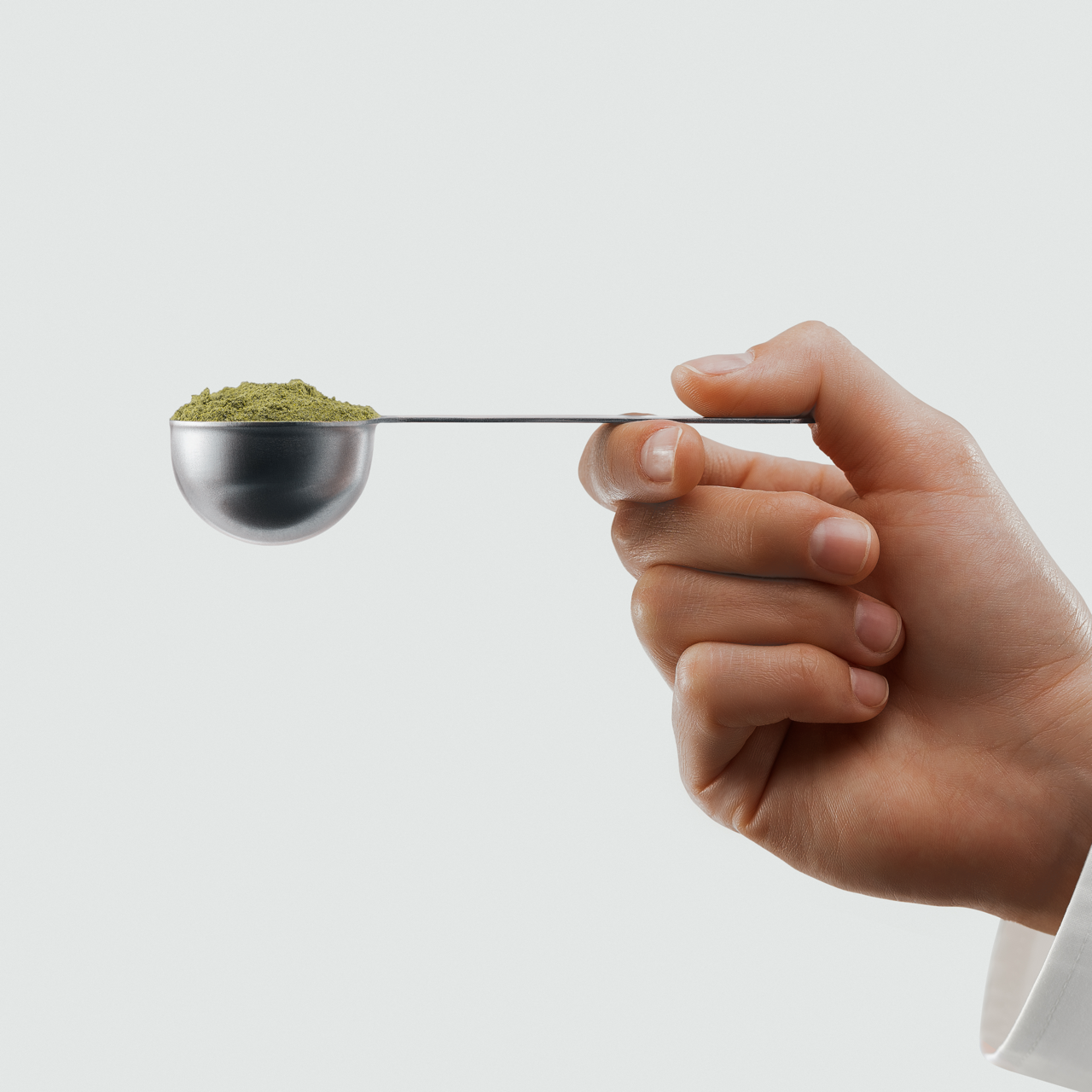
Füllen Sie Ihren PLETO® Messlöffel und mischen Sie ihn mit 250 ml Wasser.

Schütteln Sie die Flasche 5-10 Sekunden lang.

Fertig. Genießen Sie PLETO®.

Füllen Sie Ihren PLETO® Messlöffel und mischen Sie ihn mit 250 ml Wasser.

Schütteln Sie die Flasche 5-10 Sekunden lang.

Fertig. Genießen Sie PLETO®.
Formel aus 92 hochwertigen Nährstoffen und Zutaten





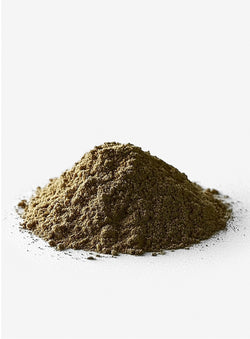






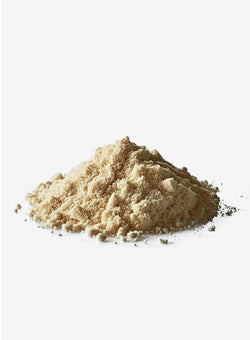




Antioxidantien, Phytonährstoffe und Fruchtextrakte
Antioxidantien sind aufgrund ihrer Konzentration an essentiellen Nährstoffen und ihrer umfassenden Vorteile für ein gesundes Leben unerlässlich. Von ihrem Beitrag zum Schutz vor Zellschäden bis hin zur Verringerung des Risikos chronischer Krankheiten.
Phytonährstoffe unterstützen das Immunsystem, haben entzündungshemmende Eigenschaften, helfen bei der Hormonregulierung und unterstützen das Herz-Kreislauf- und Verdauungssystem.
Pleto beinhaltet:
Resveratrol
Apfel
Bio-Acerola
Carica papaya
Ananas
Bio Rote Bete
Bio-Karotte
Bio-Blaubeere
Bio-Ingwer
Bio-Artischocke
Bio-Klettenwurzel
Bio-Açaí
Kokoswasser
Tomatenextrakt 5% Lycopin
Granatapfel
Astaxanthin
Bio-Schwarze Johannisbeere
Zitrone
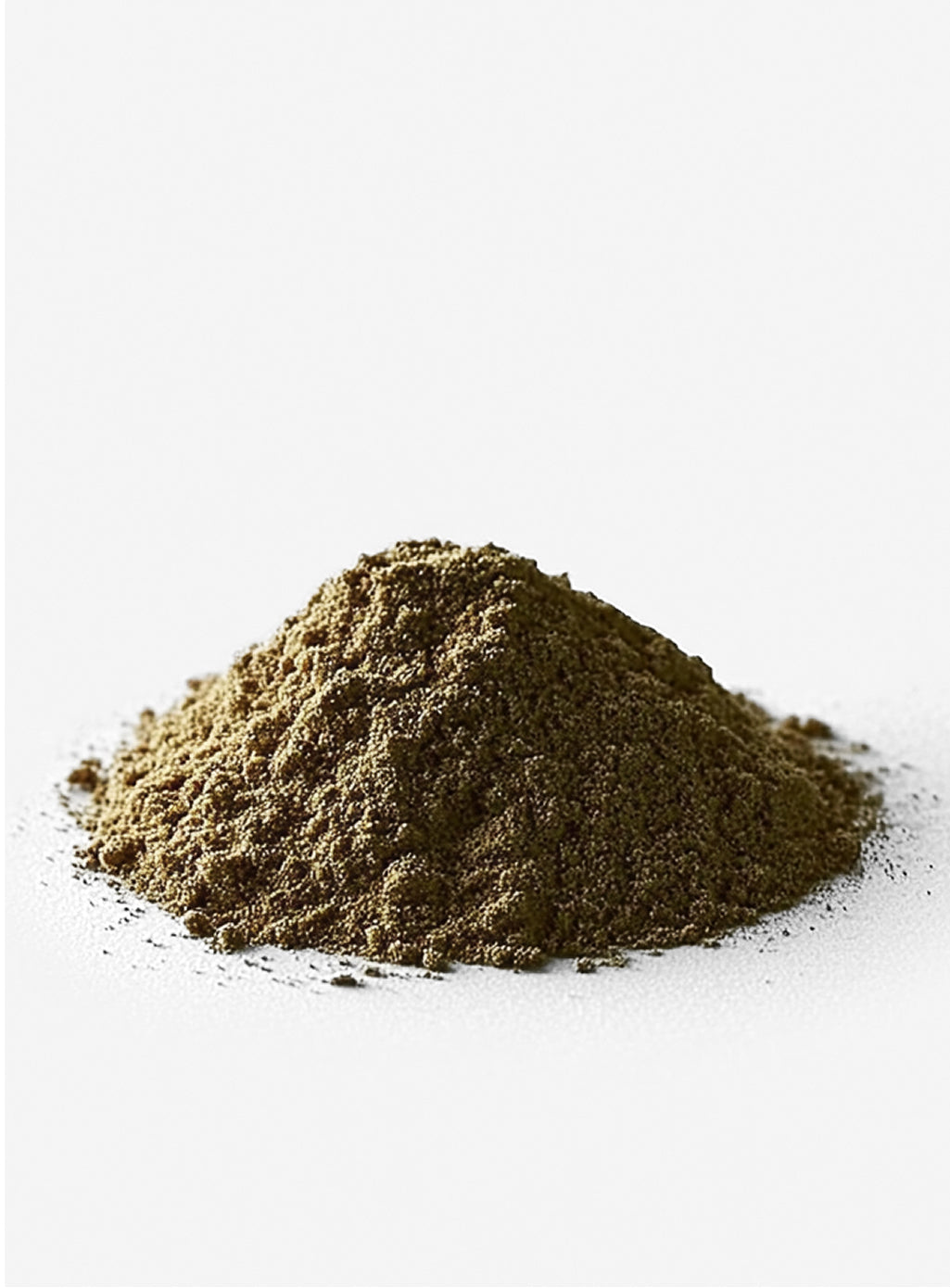
Aminosäuren
Aminosäuren sind wie die Bausteine von Proteinen, die für fast alle biologischen Funktionen des Körpers unerlässlich sind.
Sie sind von grundlegender Bedeutung für die Proteinsynthese, die Erhaltung und Reparatur von Gewebe, die Unterstützung des Immunsystems, die Energieproduktion und die Regulierung von Gehirn- und Hormonfunktionen.
Pleto beinhaltet:
Glycin
Prolin
Cystein
Glutaminsäure
Alanin
Arginin
Asparaginsäure
Lysin
Serin
Leucin
Valin
Phenylalanin
Threonin
Isoleucin
Histidin
Tyrosin
Methionin
Tryptophan

Mikroalgen
Mikroalgen sind mikroskopisch kleine, einzellige Organismen, die in Gewässern vorkommen. Für Pleto werden sie aus Süßwasser gewonnen.
Sie sind eine reichhaltige und konzentrierte Quelle wichtiger Nährstoffe, Antioxidantien und bioaktiver Verbindungen, die zahlreiche Vorteile bieten, wie z. B. eine Verbesserung der Verdauungsgesundheit, die Unterstützung des Immunsystems, die Entgiftung des Körpers und die Bereitstellung von Energie.
Pleto beinhaltet:
Bio-Spirulina
Bio-Chlorella

Adaptogene
Adaptogene sind eine Klasse von Kräutern und natürlichen Verbindungen, die dem Körper helfen, sich an Stress anzupassen und ihm zu widerstehen, Energie und Stimmung zu verbessern und die allgemeine Gesundheit und den Hormonhaushalt zu unterstützen. Sie werden seit Jahrhunderten traditionell in der chinesischen und ayurvedischen Medizin verwendet.
Pleto beinhaltet:
Bio-Rhodiola
Bio-Ashwagandha
Melissa officinalis
Schisandra chinensis
Emlica Officinalis
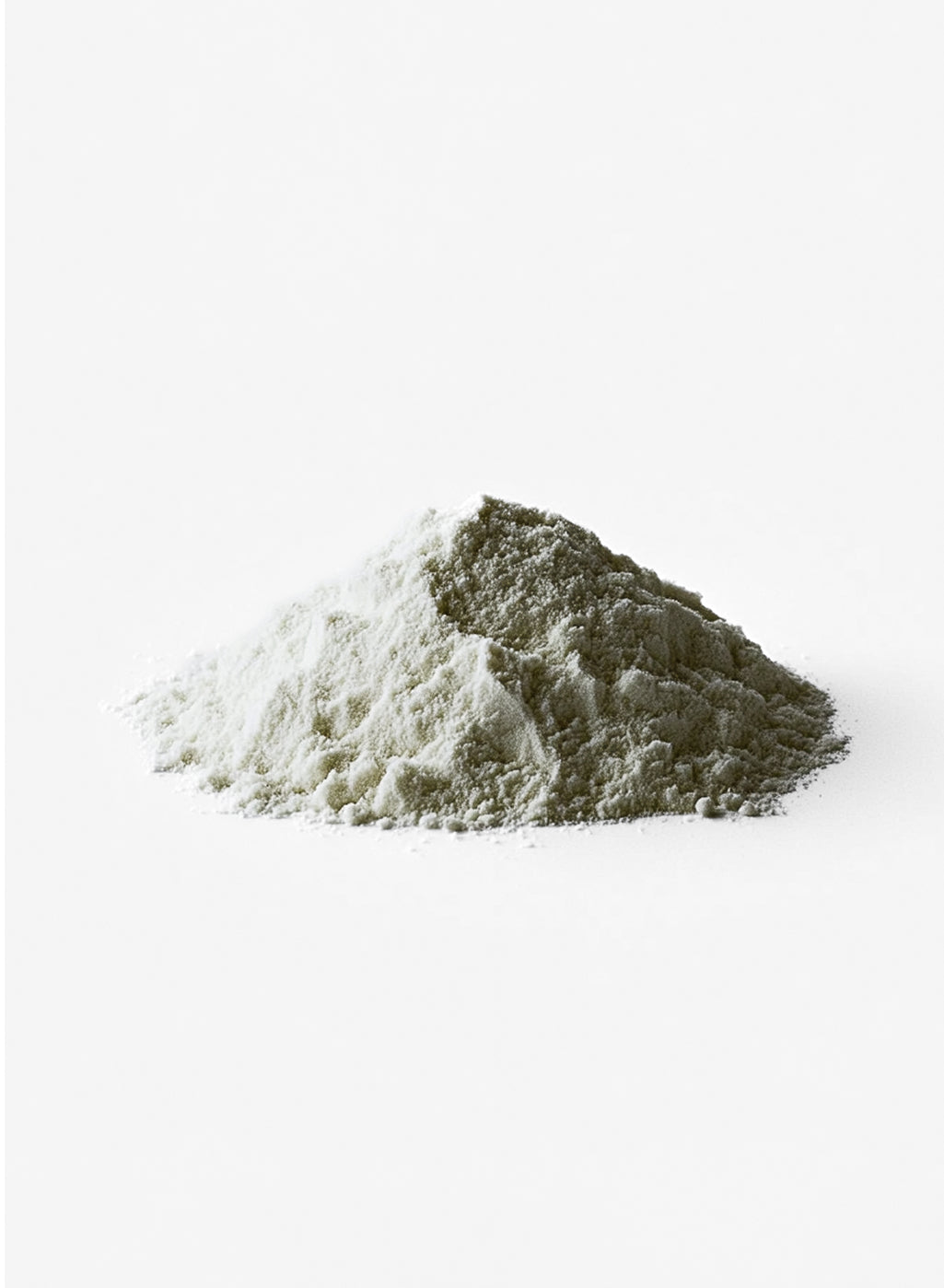
Mineralien
Mineralien sind essentielle anorganische Nährstoffe, die der Körper zur Erfüllung verschiedener grundlegender biologischer Funktionen benötigt.
Pleto beinhaltet:
Kalzium (Ca)
Natrium (Na)
Zink (Zn)
Kupfergluconat (Cu)
Kalium (K)
Mangan (Mn)
Magnesium (Mg)
Chrompicolinat (Cr)

Pflanzliches Eiweiß
Im Gegensatz zu tierischem Eiweiß enthält pflanzliches Eiweiß weniger gesättigte Fette und Cholesterin und kann eine Vielzahl zusätzlicher Nährstoffe wie Ballaststoffe, Vitamine und Mineralien liefern.
Pleto beinhaltet:
Bio-Erbsenprotein.

Samen und Flavonole
Samen sind reich an wichtigen Nährstoffen, darunter Proteine, Ballaststoffe und gesunde Fette, die eine gesunde Verdauung, Gewichtskontrolle und die Vorbeugung chronischer Krankheiten fördern.
Flavonole hingegen sind eine Unterklasse der Flavonoide, natürliche bioaktive Verbindungen, die in verschiedenen Obst- und Gemüsesorten, Trauben und Schokolade vorkommen. Sie bieten starke antioxidative und entzündungshemmende Eigenschaften, die vor chronischen Krankheiten schützen und die Herz-Kreislauf- und Gehirngesundheit verbessern können.
Pleto beinhaltet:
Hagebuttenextrakt
Bio-Mariendistel
Bio-Kürbiskerne
Traubenkern 95% OPC
Kakaoflavanole

Probiotika
Probiotika sind lebende Mikroorganismen, die bei Verabreichung in ausreichenden Mengen gesundheitsfördernd wirken.
Sie sind entscheidend für die Aufrechterhaltung eines gesunden Gleichgewichts der Darmflora und bieten vielfältige Vorteile für die Verdauung, das Immunsystem, die Psyche, den Stoffwechsel und die Hautgesundheit. Für Pleto sind sie mikroverkapselt, wodurch sie nicht durch die Magensäure zerstört werden und lebend in den Darm gelangen, wo sie ihre Funktion erfüllen.
Pleto beinhaltet:
Lactobacillus Rhamnosus
Lactobacillus Plantarum
Lactobacillus Gasseri
Bifidobacterium Longum
Bifidobacterium Bifidum
Lactobacillus Acidophilus
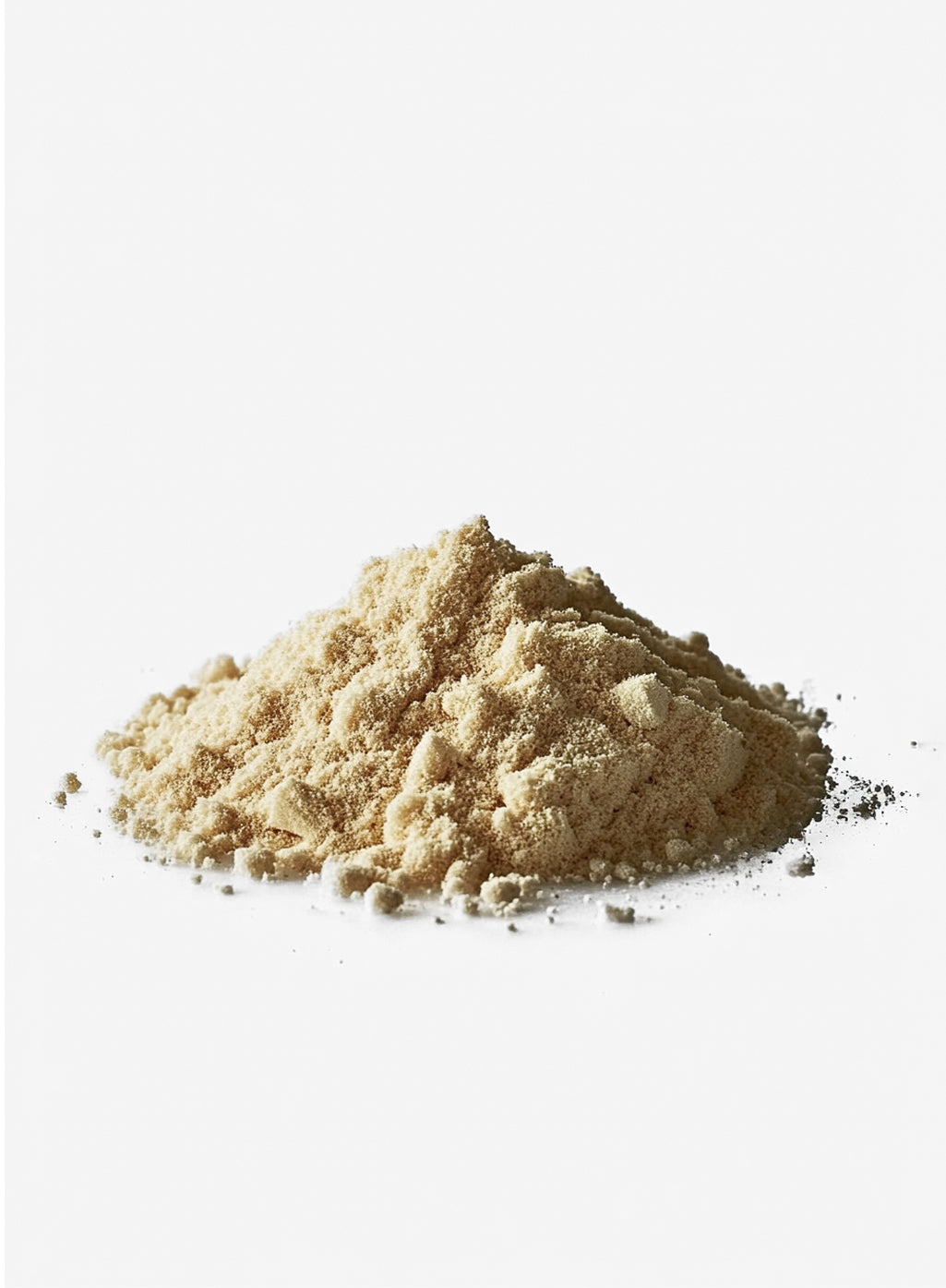
Vitamine
Vitamine sind essentielle organische Verbindungen, die der Körper in kleinen Mengen benötigt, um richtig zu funktionieren. Die meisten Vitamine kann der Körper nicht in ausreichender Menge selbst synthetisieren und muss sie daher über die Nahrung aufnehmen.
Jedes Vitamin erfüllt spezifische und wichtige Funktionen im Körper, von der Unterstützung des Stoffwechsels und der Immunfunktion bis hin zur Vorbeugung chronischer Krankheiten und der Erhaltung der psychischen Gesundheit. Die Aufnahme einer ausreichenden Menge an Vitaminen durch eine ausgewogene Ernährung ist von grundlegender Bedeutung für die Aufrechterhaltung optimaler Körperfunktionen und die Vorbeugung von Nährstoffmängeln.
Pleto beinhaltet:
Vitamin A
Vitamin C
Vitamin E
Vitamin B2
Vitamin B3
Vitamin B5
Vitamin B6
Vitamin B8
Vitamin B9
Vitamin B12
Vitamin D3
Vitamin K2

Grünzeug, Ballaststoffe und Präbiotika
Ballaststoffe sind Kohlenhydrate, die im Darm nicht vollständig verdaut werden können. Sie sind in pflanzlichen Lebensmitteln wie Obst, Gemüse, Vollkornprodukten und Hülsenfrüchten enthalten. Ballaststoffe helfen, Verstopfung vorzubeugen, steigern das Sättigungsgefühl und regulieren den Blutzuckerspiegel.
Präbiotika sind Ballaststoffe, die als Nahrung für nützliche Bakterien im Darm (Darmmikrobiota) dienen. Sie werden nicht im Magen oder Dünndarm verdaut, sondern im Dickdarm fermentiert, wo sie das Wachstum und die Aktivität gesunder Bakterien fördern.
Pleto beinhaltet:
Inulin
Beta-Glucane
Weizen
Bio-Spinat

Verdauungsenzyme
Verdauungsenzyme sind Proteine, die die chemischen Reaktionen beschleunigen, die notwendig sind, um Nahrung in ihre Grundbestandteile zu zerlegen: Kohlenhydrate, Proteine und Fette, damit diese vom Körper aufgenommen und verwertet werden können.
Ihre Rolle bei der Verdauung ist von grundlegender Bedeutung für die Aufrechterhaltung einer guten Verdauungsgesundheit, die Vorbeugung von Verdauungsproblemen und die Gewährleistung, dass der Körper die notwendigen Nährstoffe erhält, um richtig zu funktionieren.
Pleto beinhaltet:
Amylase
Neutrale Protease
Zellulase
Laktase
Lipase

Andere Zutaten
Pleto enthält hochwertige Inhaltsstoffe mit sehr interessanten und vorteilhaften Eigenschaften für die Gesundheit des Körpers, die in einer einzigen Formel nur schwer zu finden sind.
Pleto beinhaltet:
Coenzym Q10
Spermidin
Hyaluronsäure
Rinde der Rotulme
Inositol
Cholin
Lösen Sie alle Ihre Zweifel.
Wenn Sie eine Erkrankung haben, die möglicherweise mit PLETO® unvereinbar ist, empfehlen wir, Ihren Arzt zu konsultieren. Nicht empfohlen für Kinder, schwangere Frauen oder stillende Mütter.
Rechtlicher Hinweis: Nahrungsergänzungsmittel sollten nicht als Ersatz für eine ausgewogene und abwechslungsreiche Ernährung sowie einen gesunden Lebensstil verwendet werden. Außerhalb der Reichweite von kleinen Kindern aufbewahren. Überschreiten Sie nicht die ausdrücklich empfohlene tägliche Dosis. Nur für die erwachsene Bevölkerung bestimmt, mit Ausnahme von schwangeren und stillenden Frauen. Dieses Nahrungsergänzungsmittel sollte nicht am selben Tag wie andere Nahrungsergänzungsmittel, die Astaxanthinester enthalten, eingenommen werden. Es sollte nicht von Säuglingen oder Kindern unter 3 Jahren konsumiert werden. Im Falle von Schwangerschaft oder Stillzeit konsultieren Sie bitte einen Gesundheitsfachmann, bevor Sie ein Nahrungsergänzungsmittel einnehmen.
**
Obwohl einige unserer Zutaten nicht biologisch sind, haben alle unsere Rohstoffe die strengsten Qualitätskontrollen durchlaufen und sind zertifiziert, wobei sie den Vorschriften hinsichtlich Kontaminanten, Pestiziden, Mikrobiologie, GVO, TSE/BSE und anderen entsprechen.**
Außerdem übertrifft der Geschmack von PLETO® erheblich den der führenden Alternativen, die derzeit auf dem Markt erhältlich sind.
Schließlich verwenden wir bei PLETO® nur die hochwertigsten und bioverfügbarsten Zutaten. Mehrere Jahre der Forschung und wissenschaftlichen Entwicklung wurden aufgewendet, um PLETO® zu einer Realität zu machen und stets an der Spitze der neuesten wissenschaftlichen Fortschritte zu bleiben.**
Es gibt viele Vorteile von PLETO®, die Sie bemerken könnten, wie Verbesserungen der Immunfunktion, Stressbewältigung, tägliche Energieniveaus, Verdauungsgesundheit, gesundes Haar und Haut, unter anderem. Möglicherweise bemerken Sie einige andere Vorteile nicht, aber das bedeutet nicht, dass Sie diese nicht haben (Ihr Körper und Ihre Gesundheit werden sie zu schätzen wissen), einschließlich der kardiovaskulären Gesundheit, zellulären Schutz, hormonelle Aktivität, Stoffwechsel, Antioxidantien usw.
Um die Vorteile von PLETO® zu maximieren, ist es wichtig, es täglich und konsequent einzunehmen, dabei die Dosierungsempfehlungen zu befolgen. Darüber hinaus kann das Aufrechterhalten eines gesunden Lebensstils insgesamt, einschließlich einer ausgewogenen Ernährung, regelmäßiger Bewegung und ausreichend Ruhe, seine positiven Effekte verstärken.**
Ein Abonnement stellt sicher, dass Sie immer PLETO® zur Verfügung haben. Darüber hinaus sparen Sie Geld.
Unabhängig von der Zahlungsmethode garantieren wir einen maximal sicheren Zahlungsprozess.
Wir setzen alles daran, die höchste Qualität und Sicherheit der Zutaten durch gründliche Analysen, Zertifizierungen und die strengsten Produktionsstandards sicherzustellen, während wir stets die Rückverfolgbarkeit der Rohstoffe gewährleisten.

